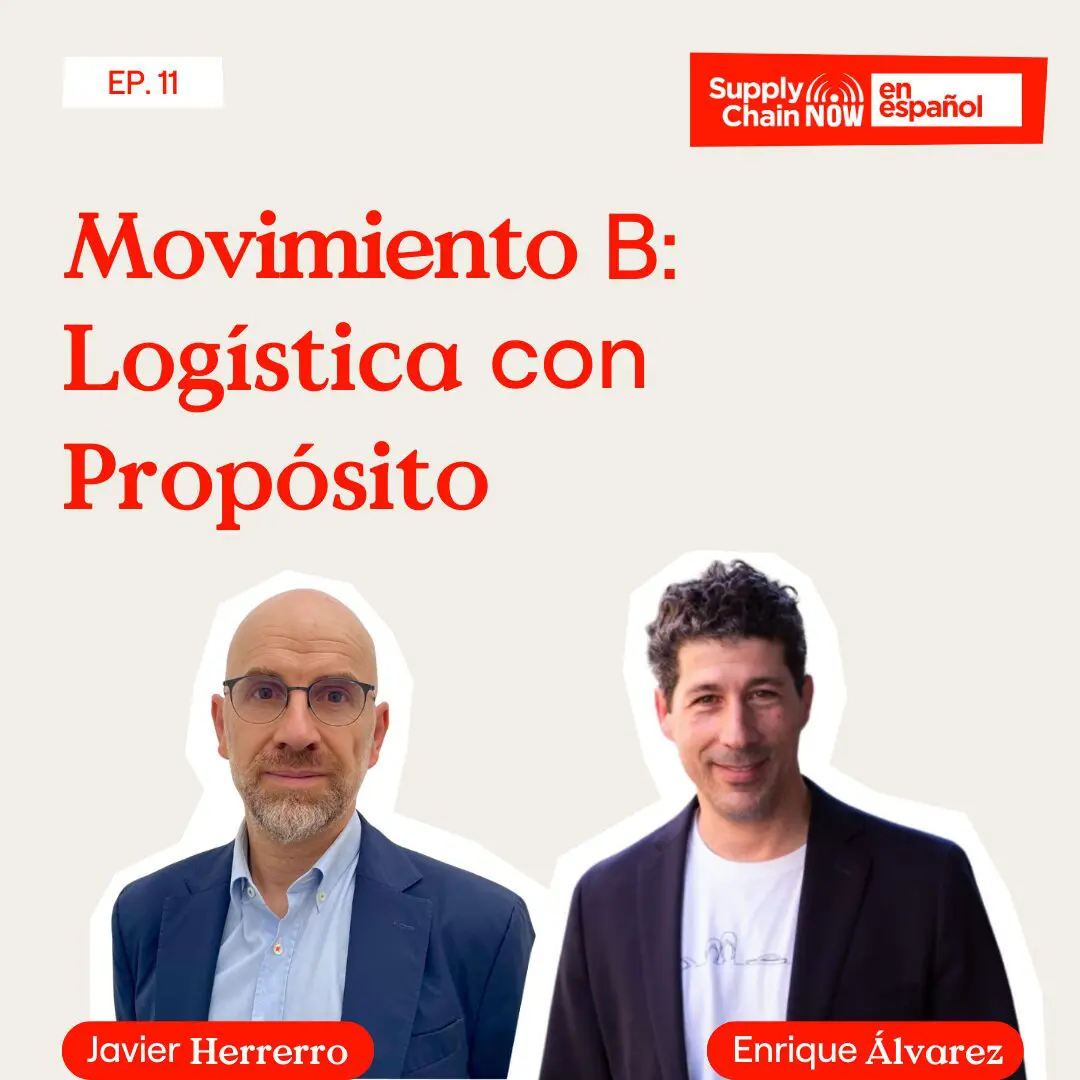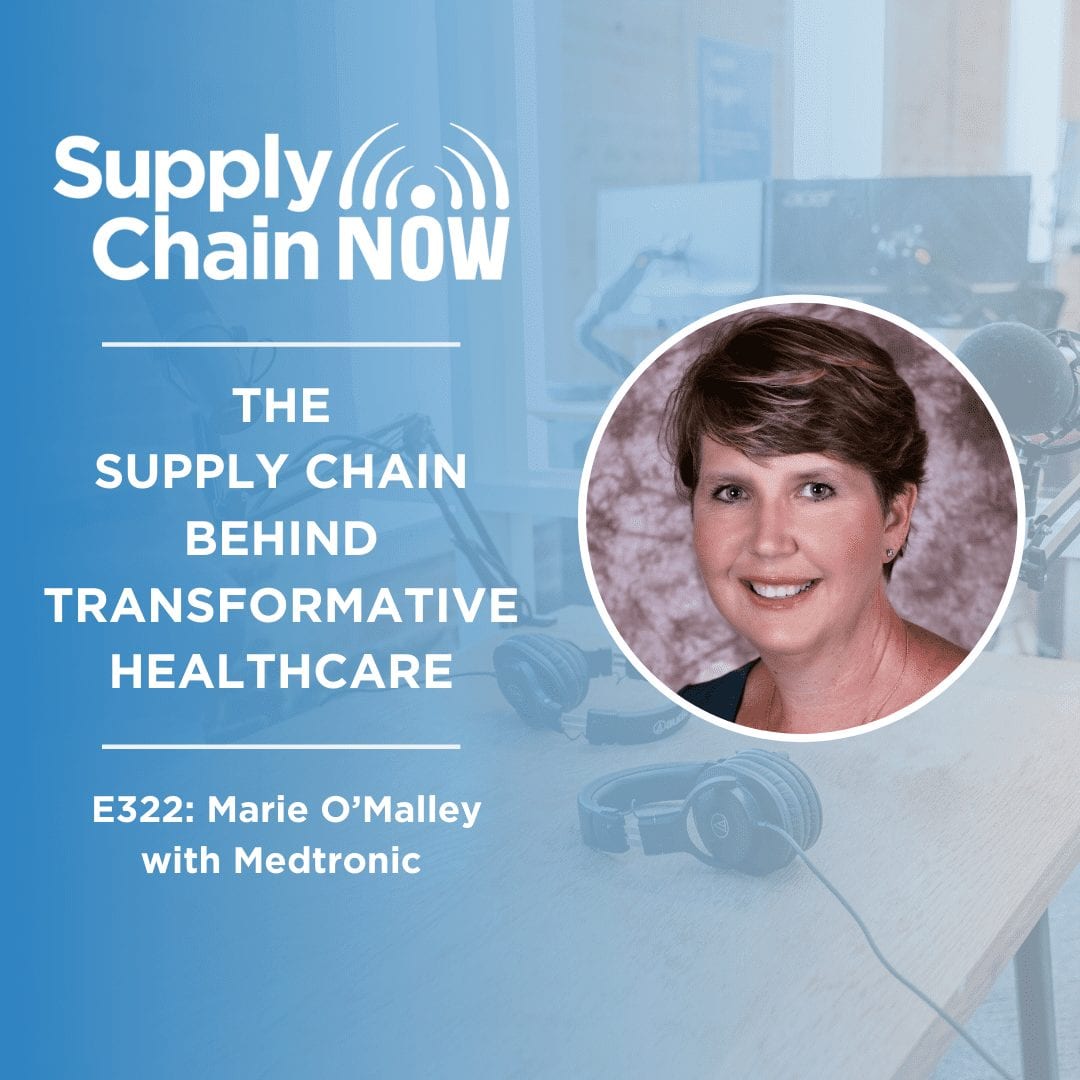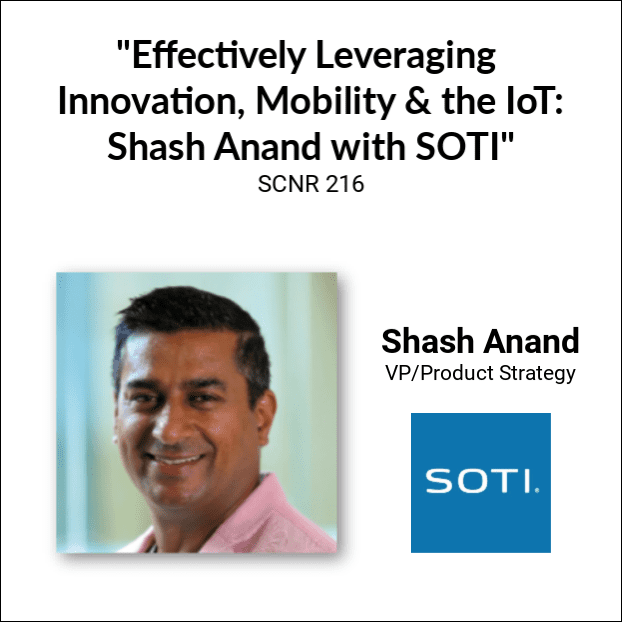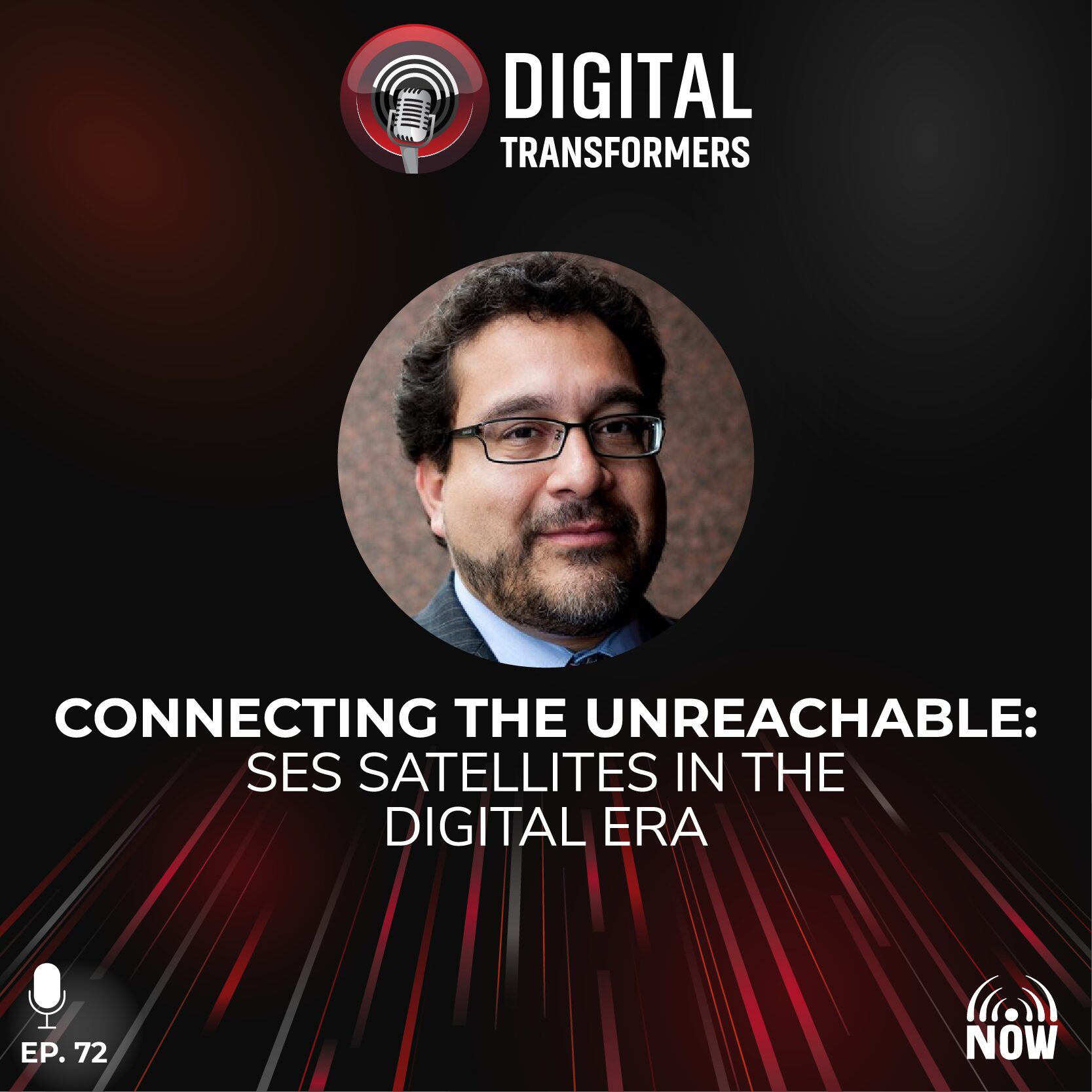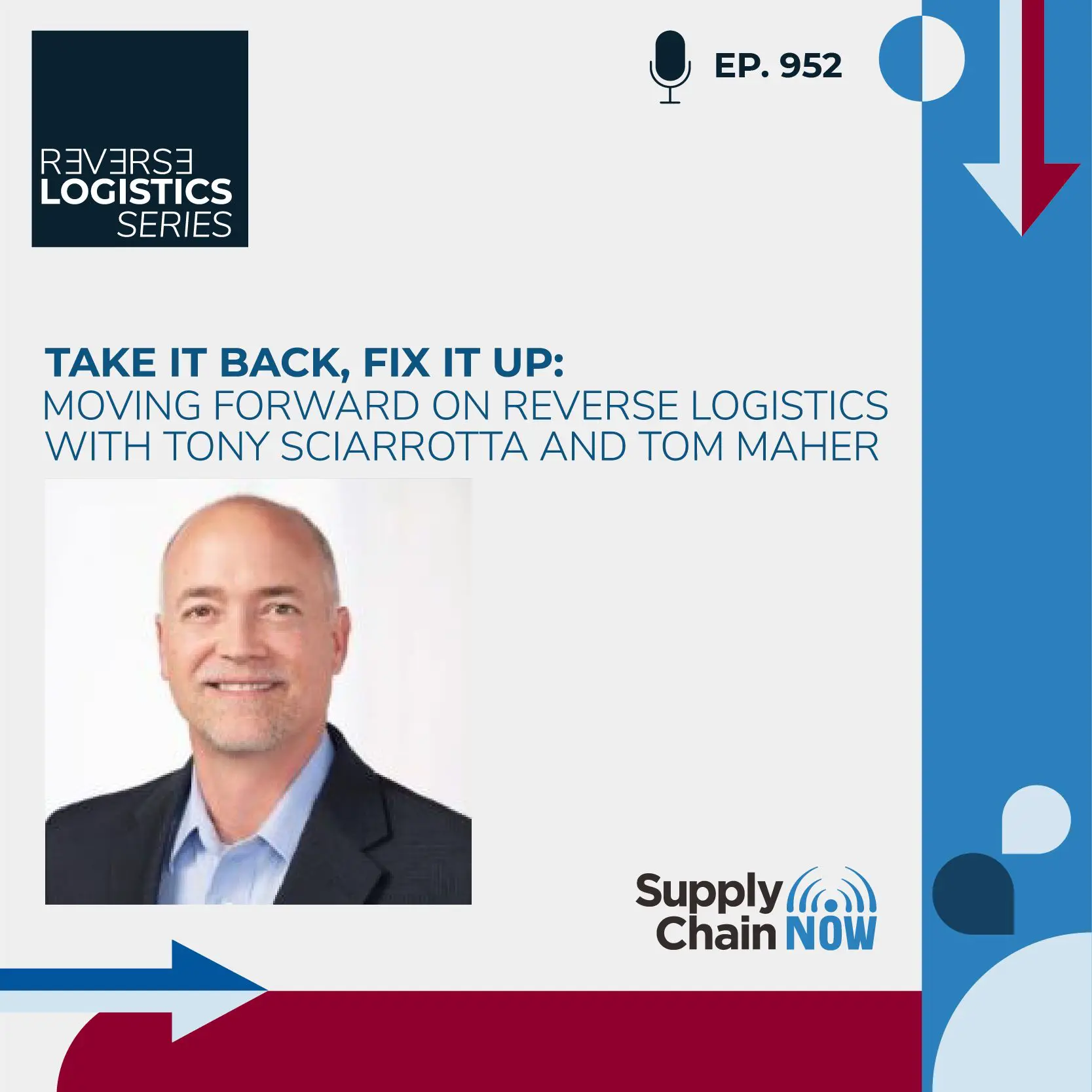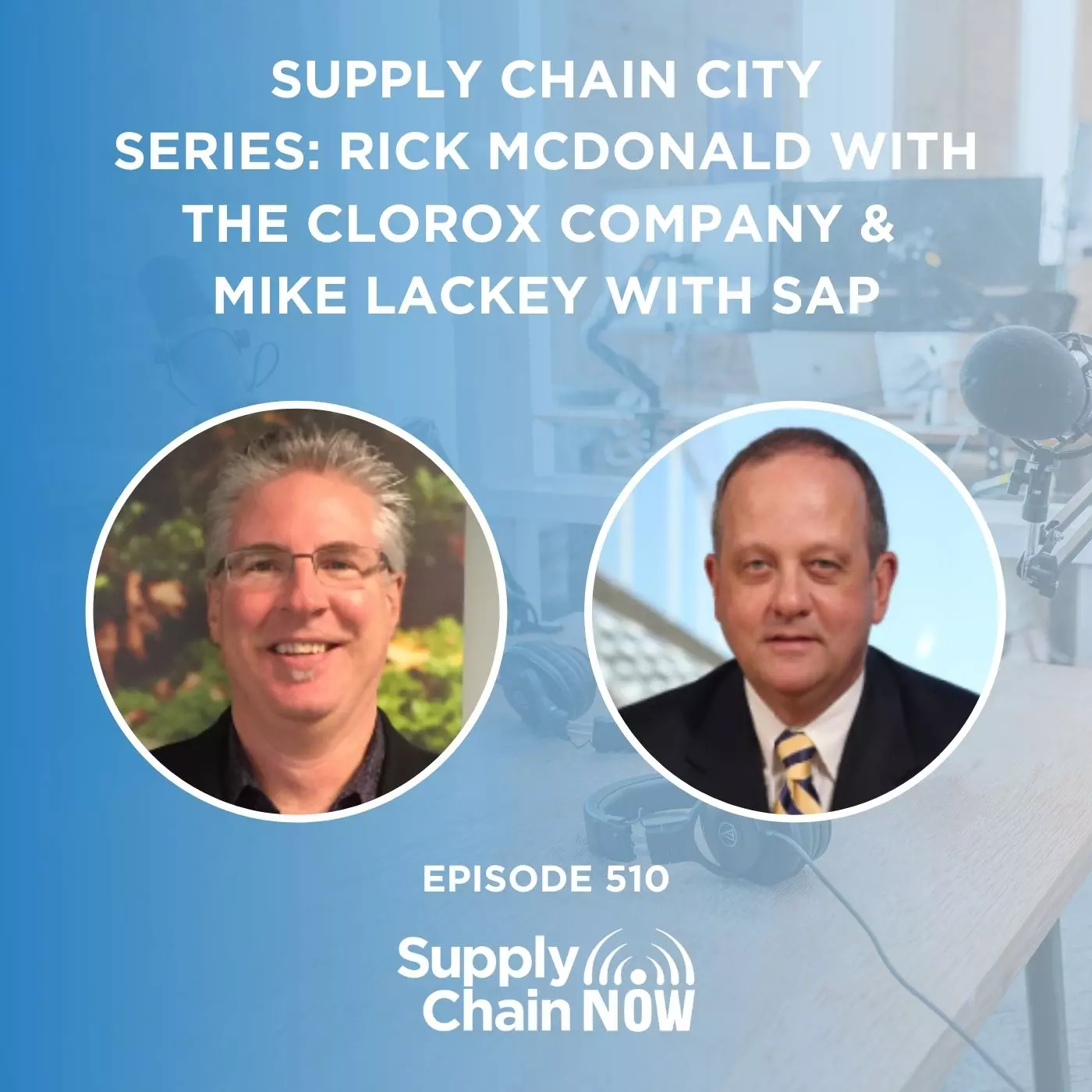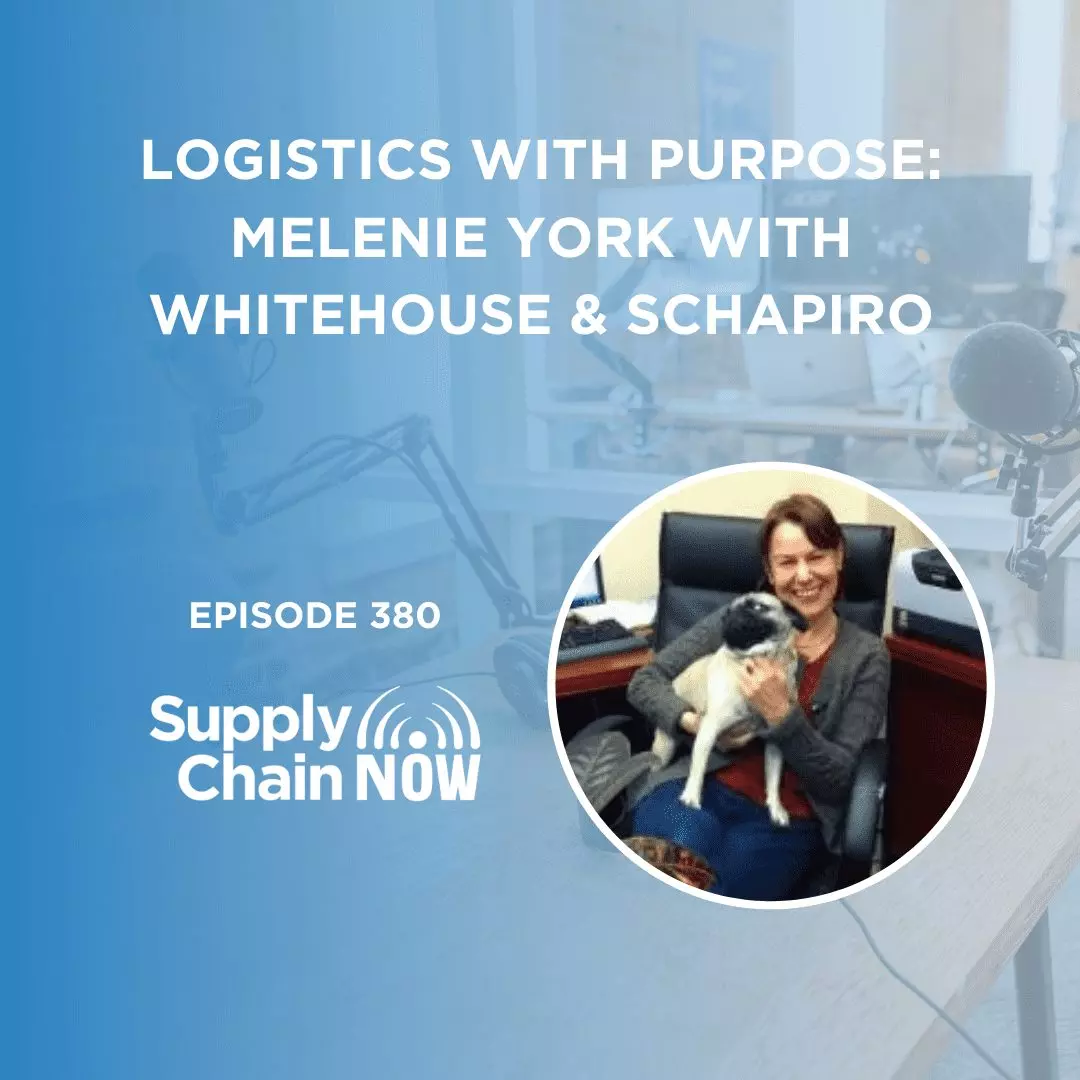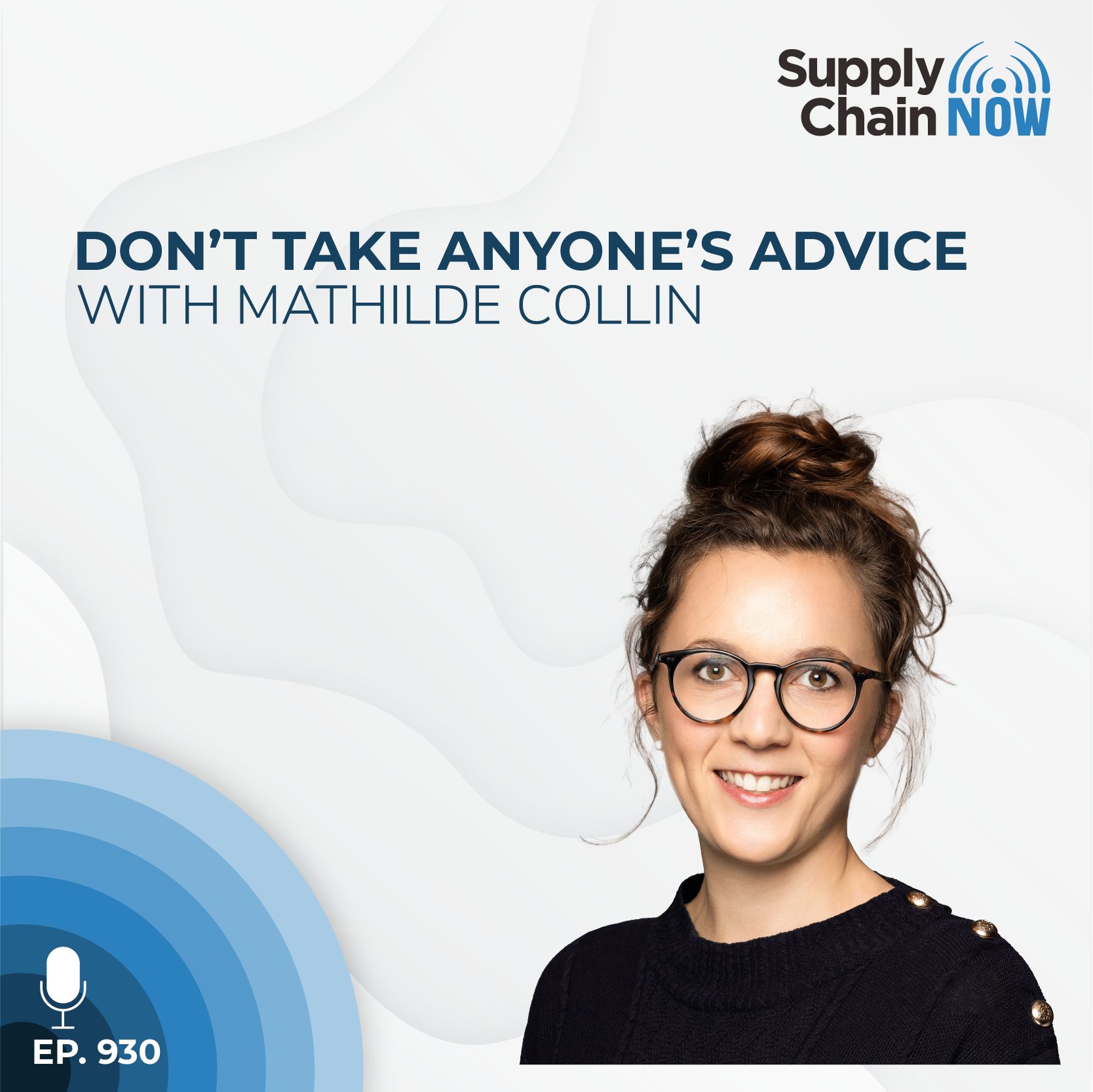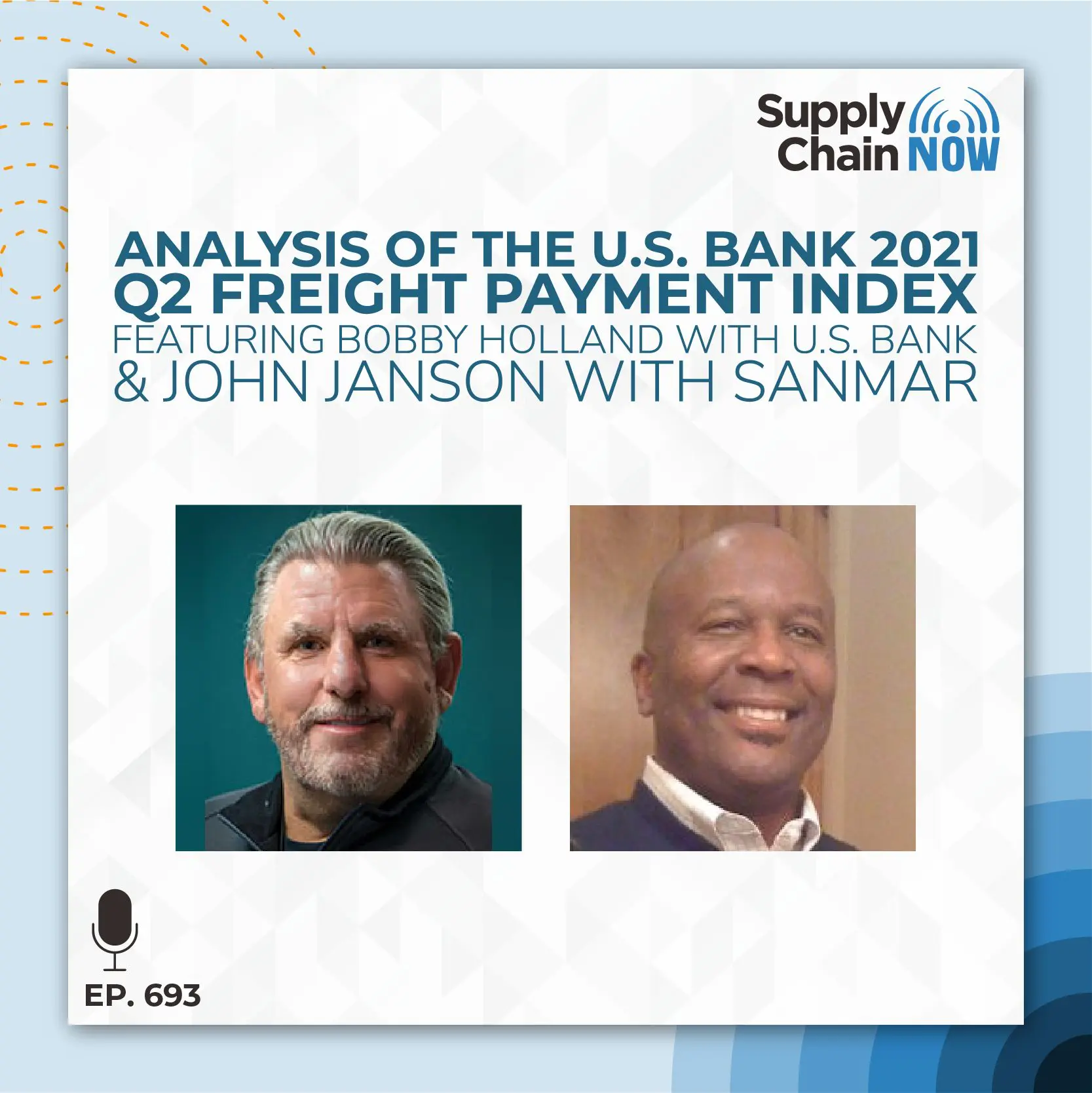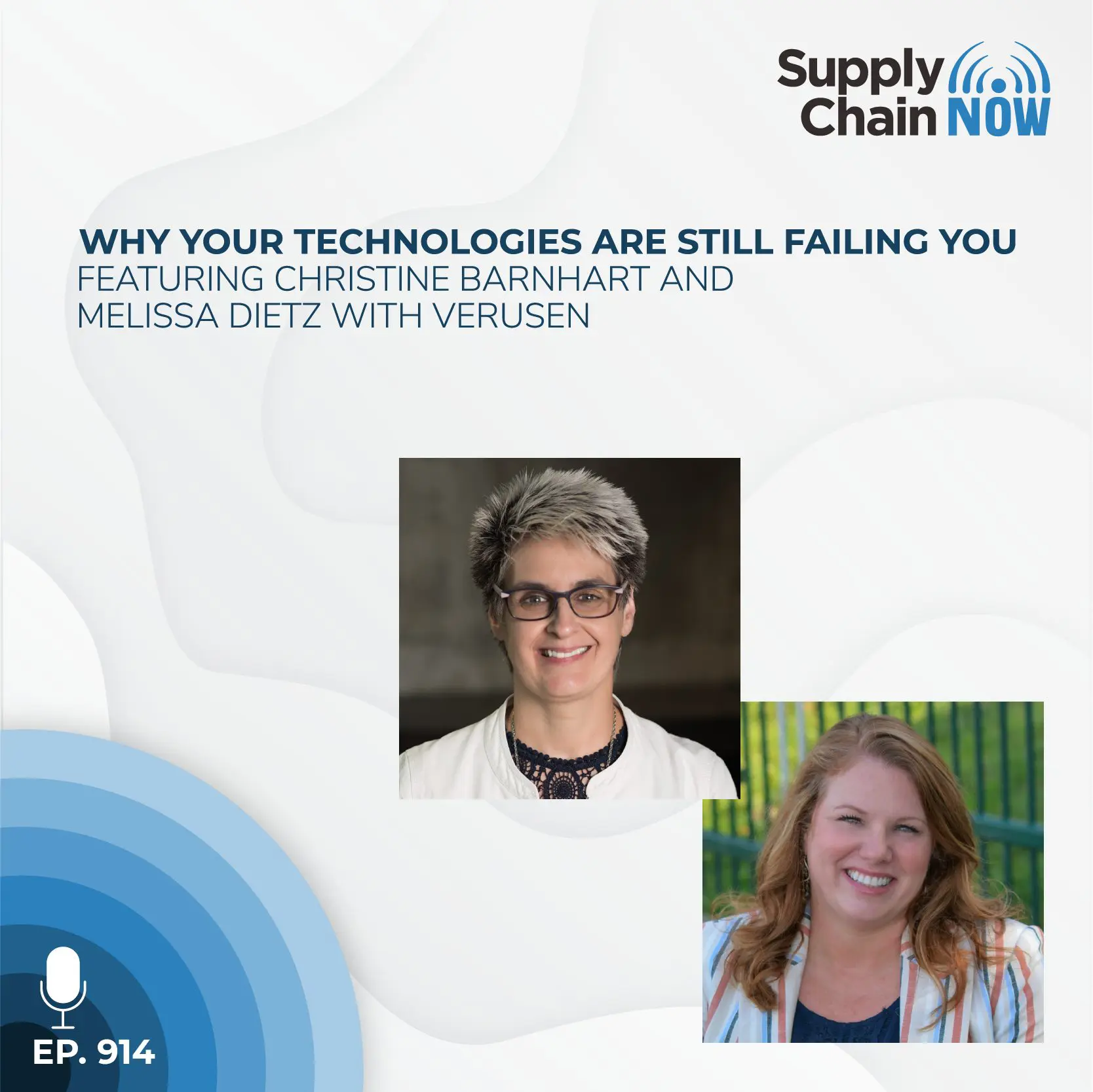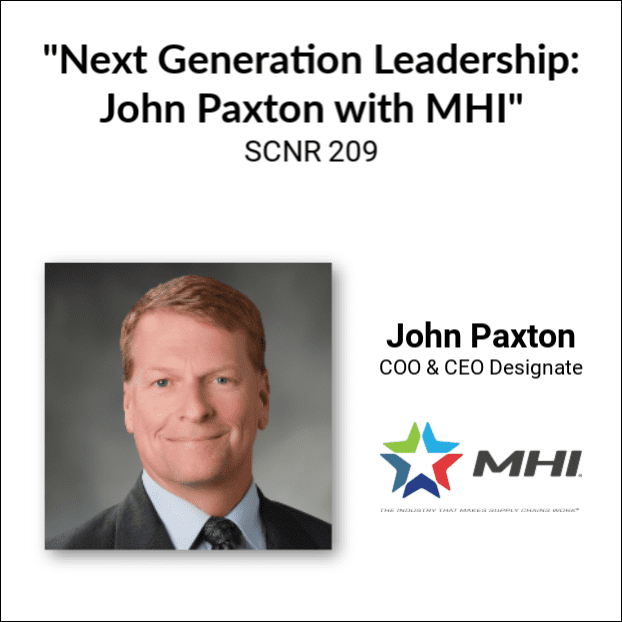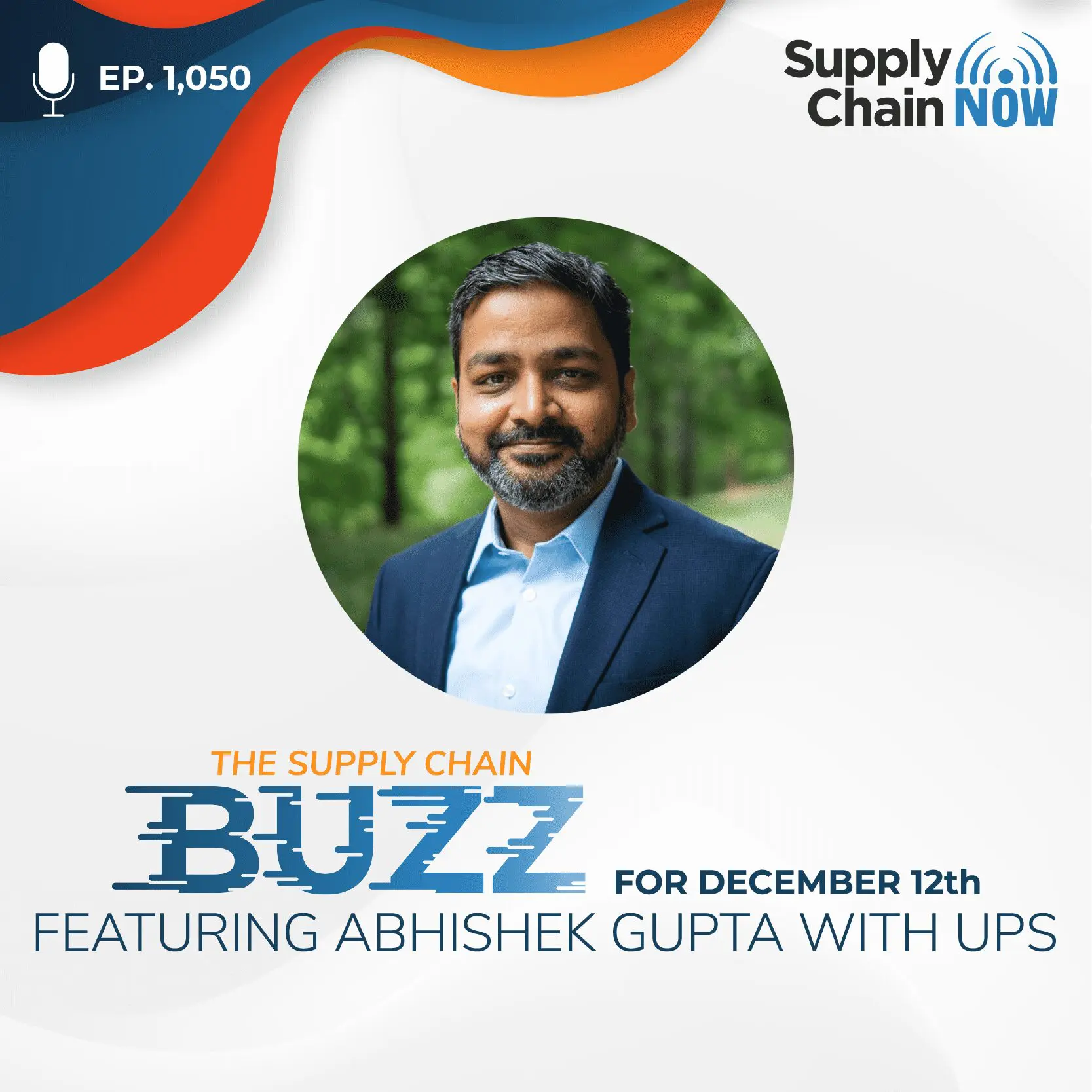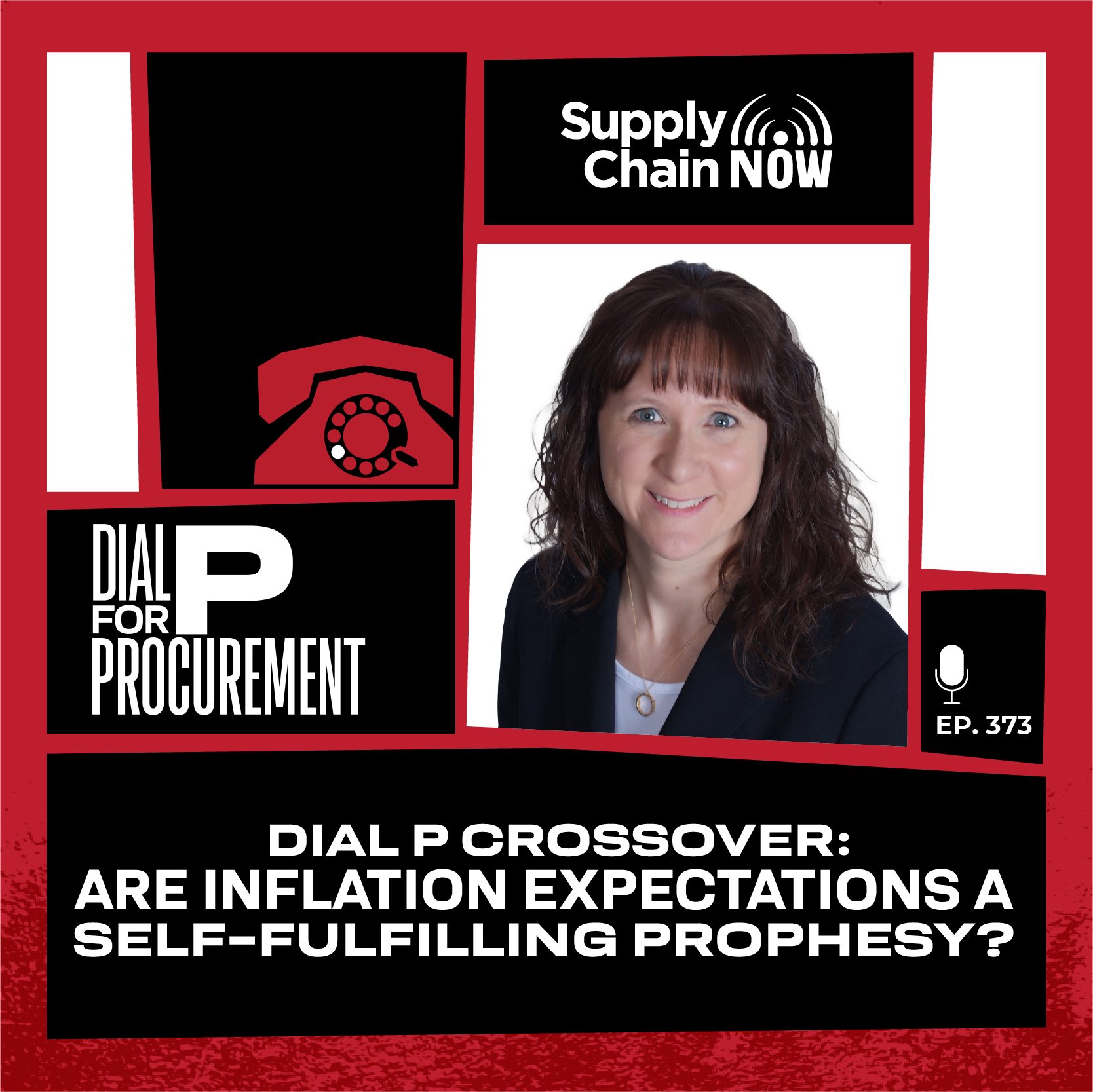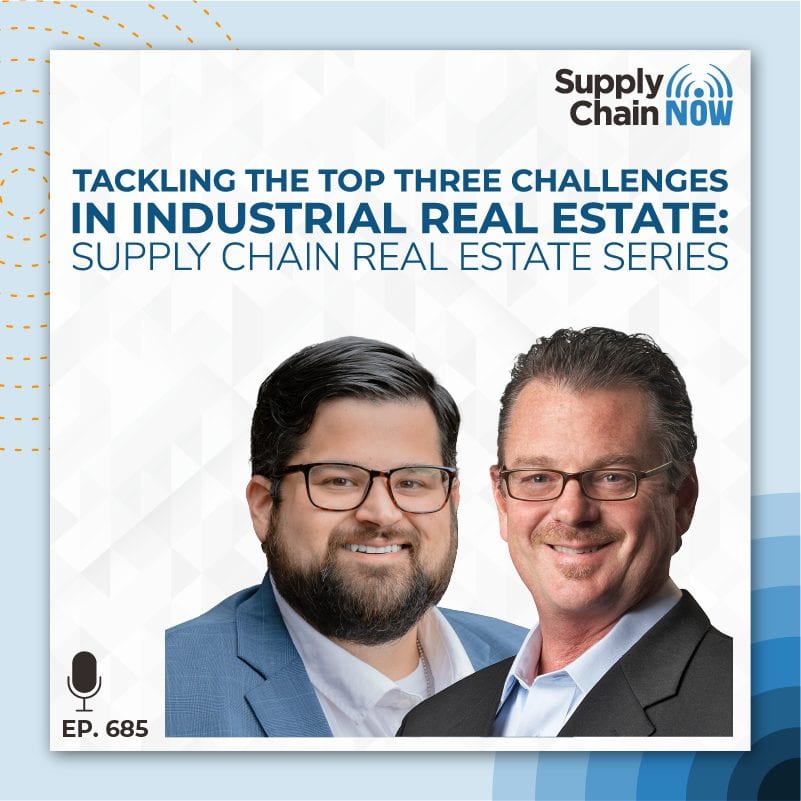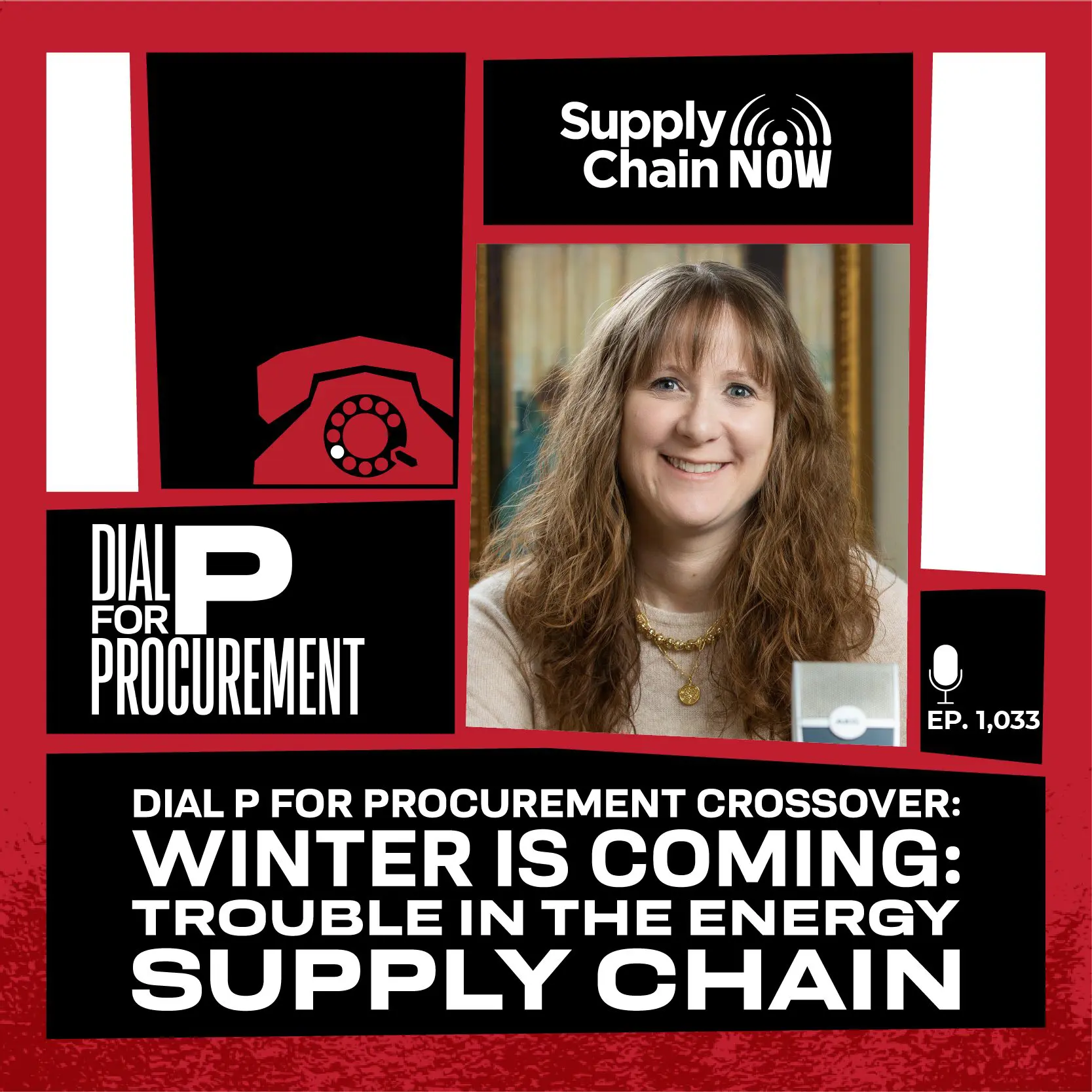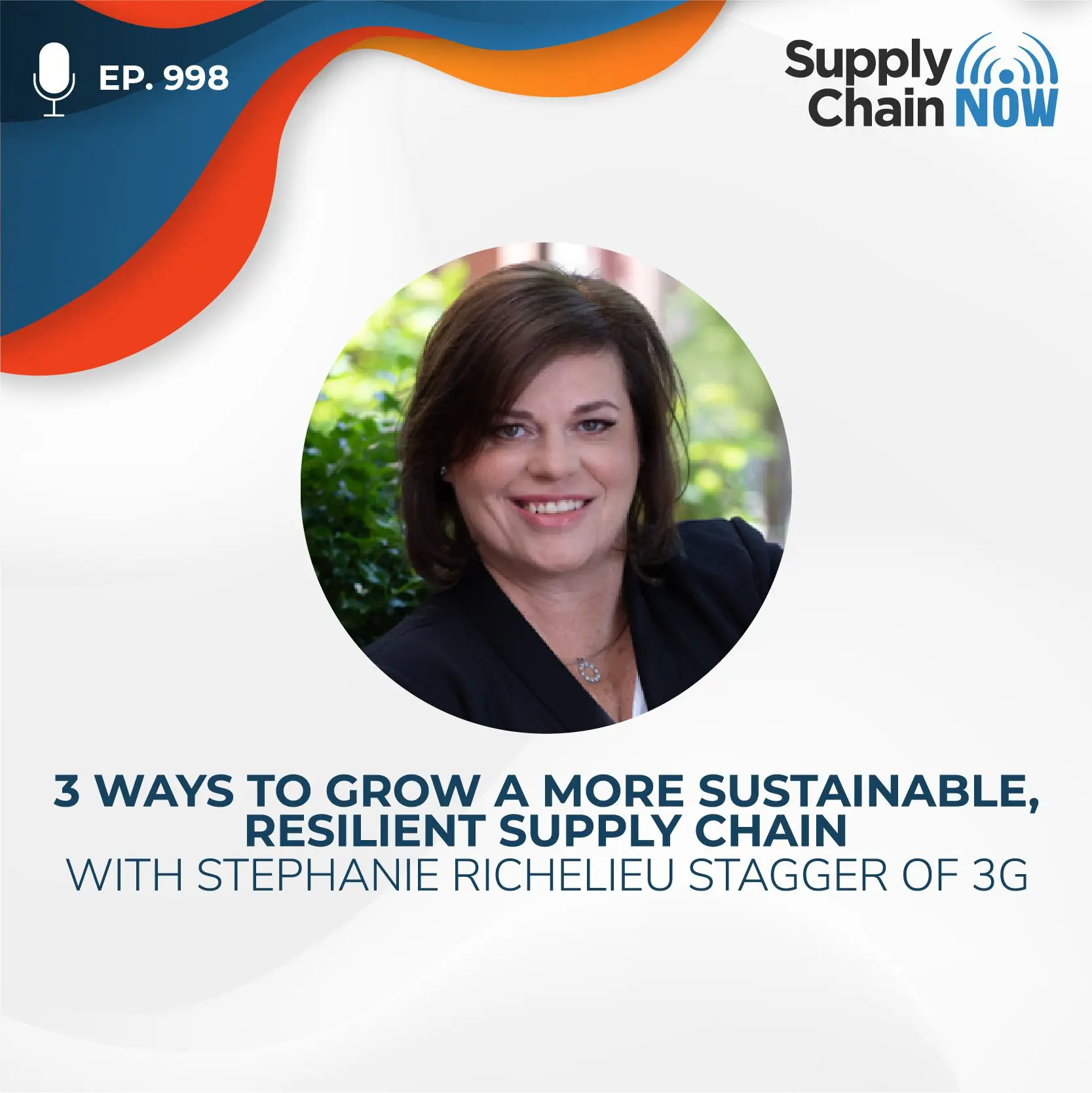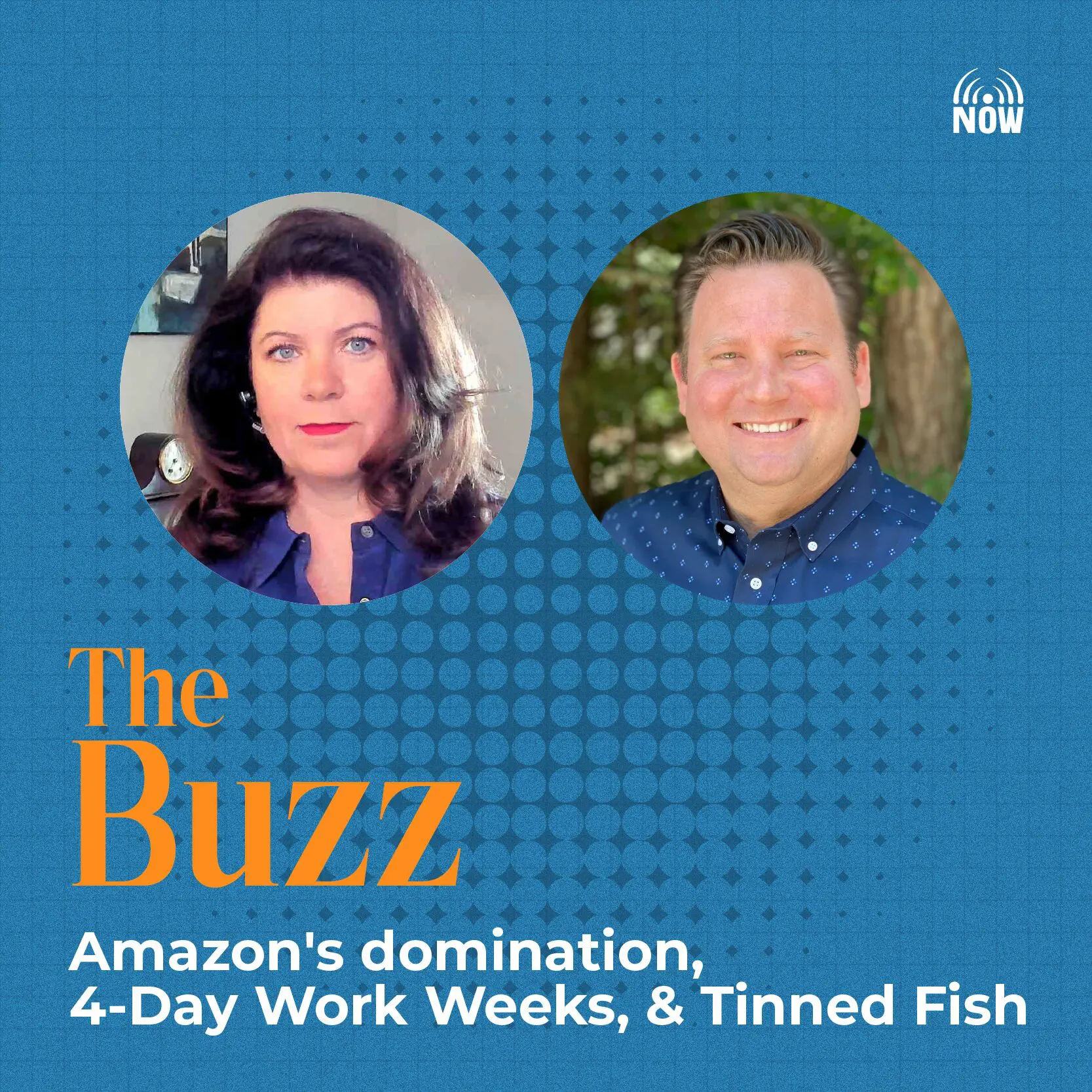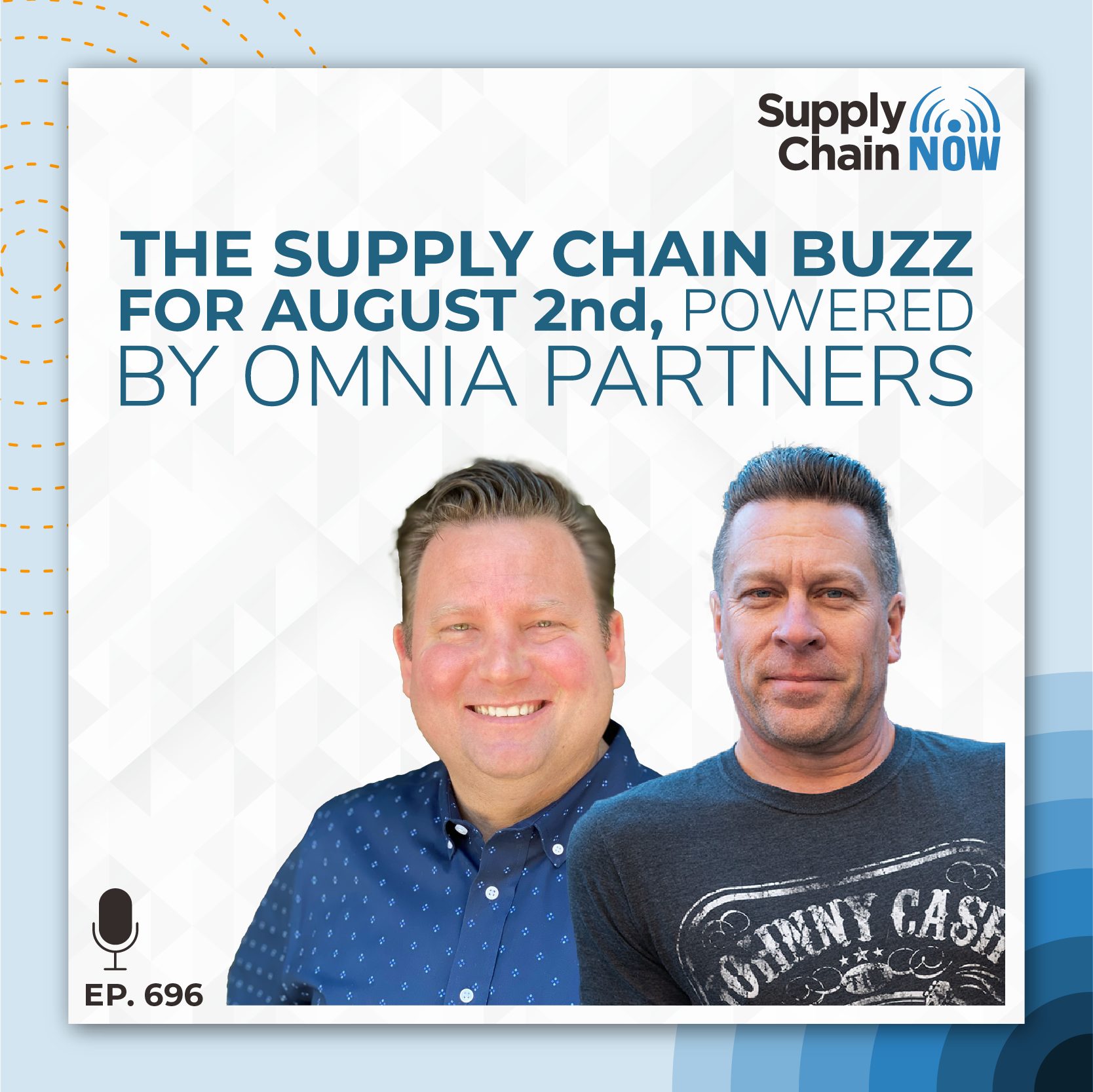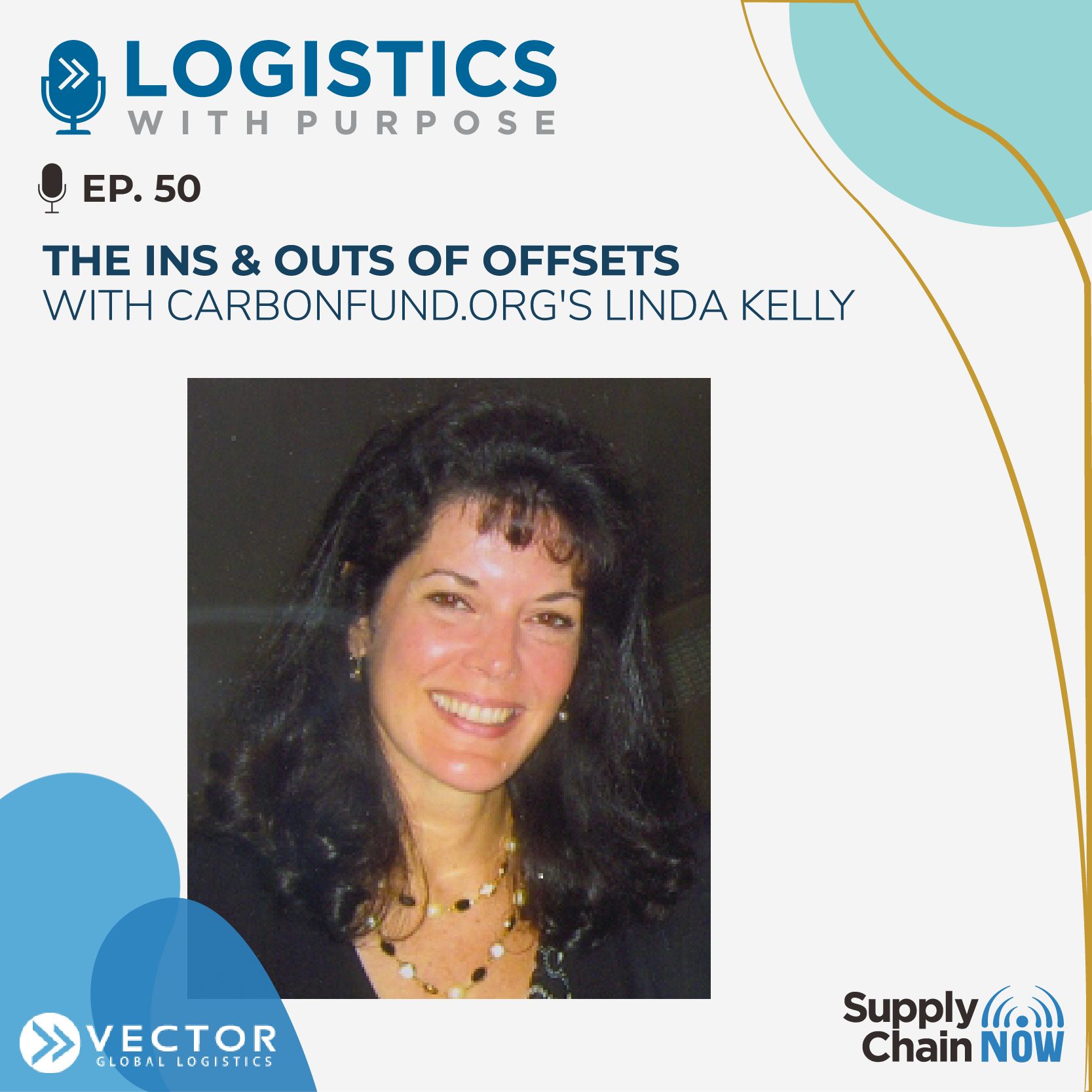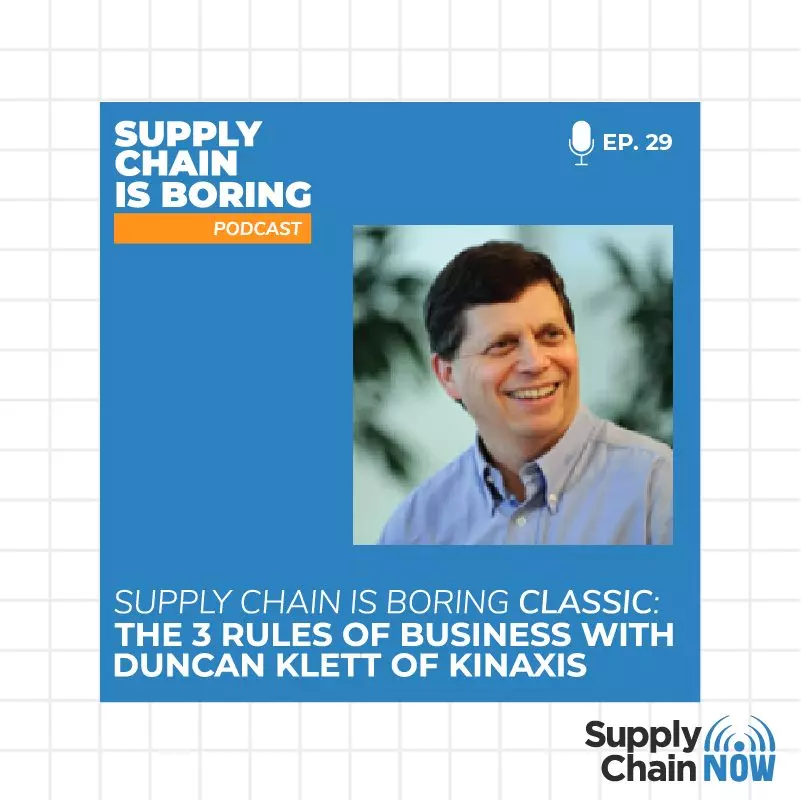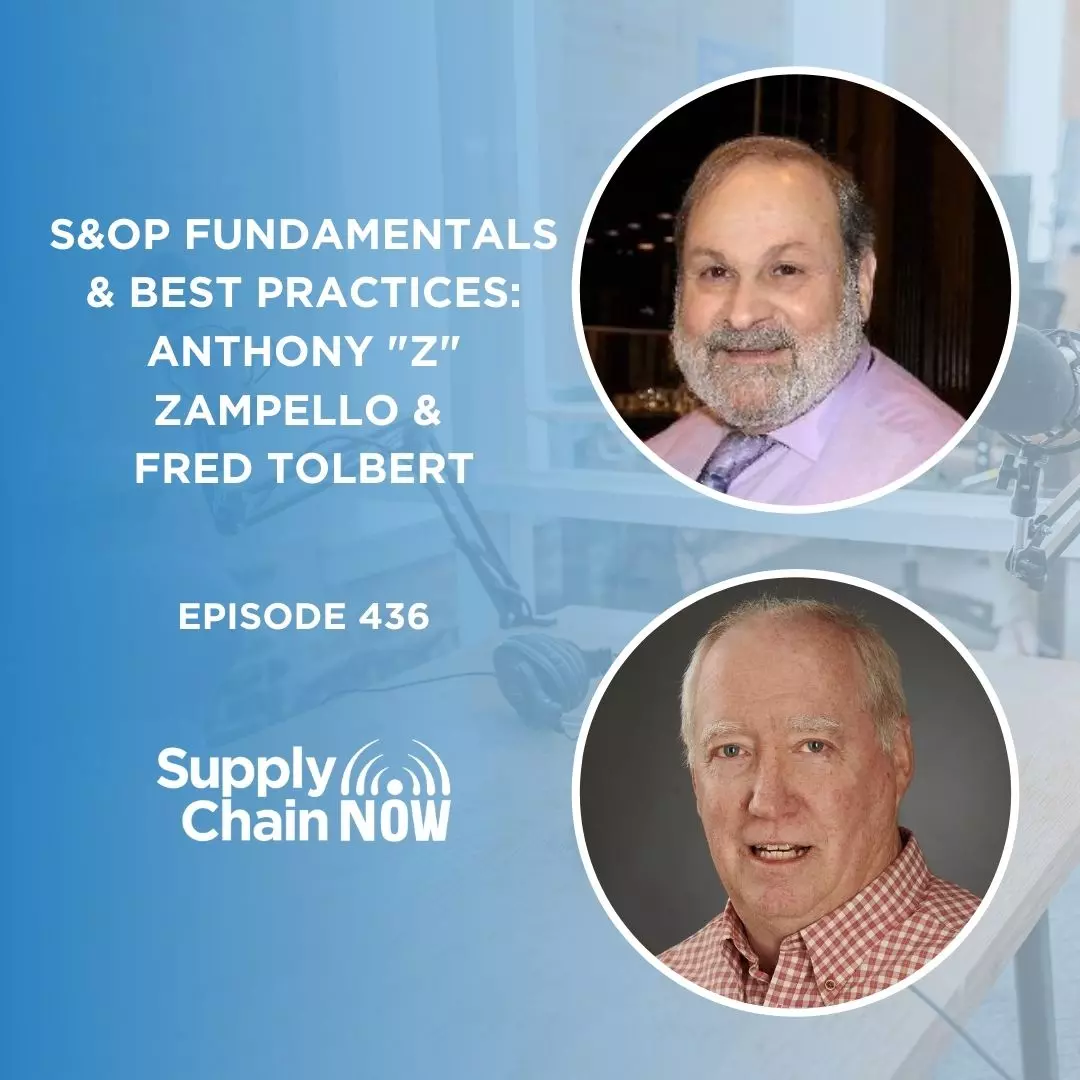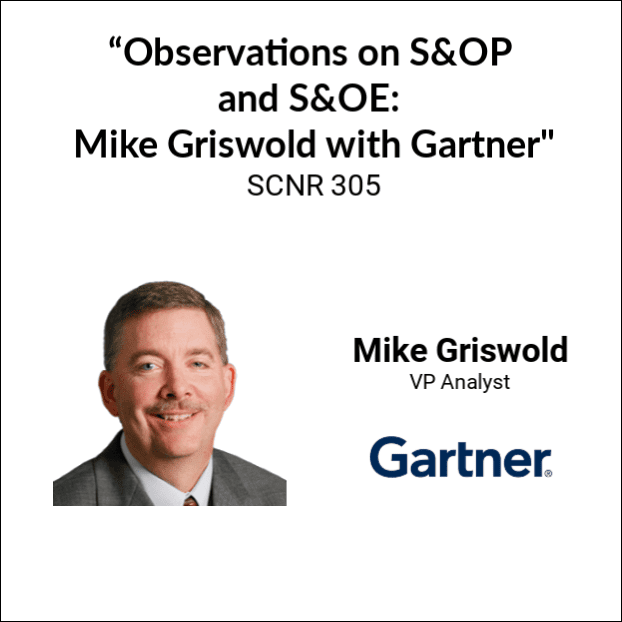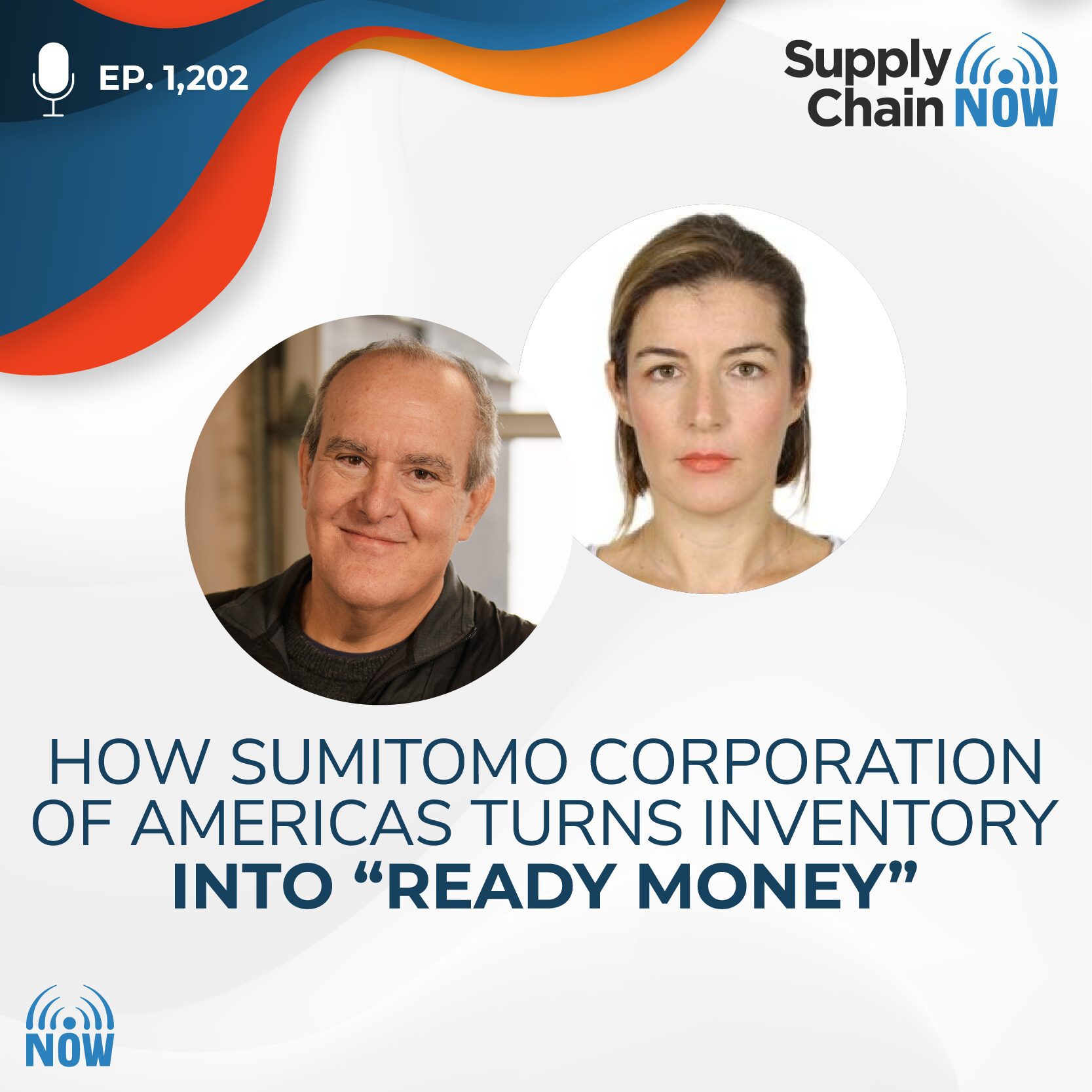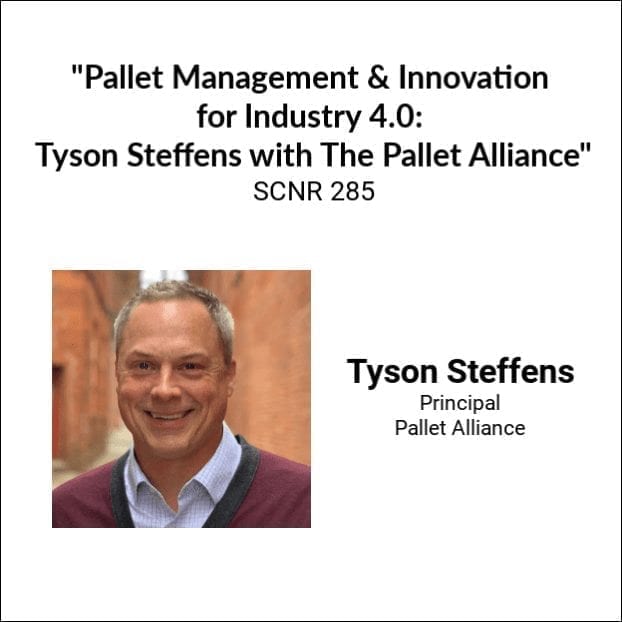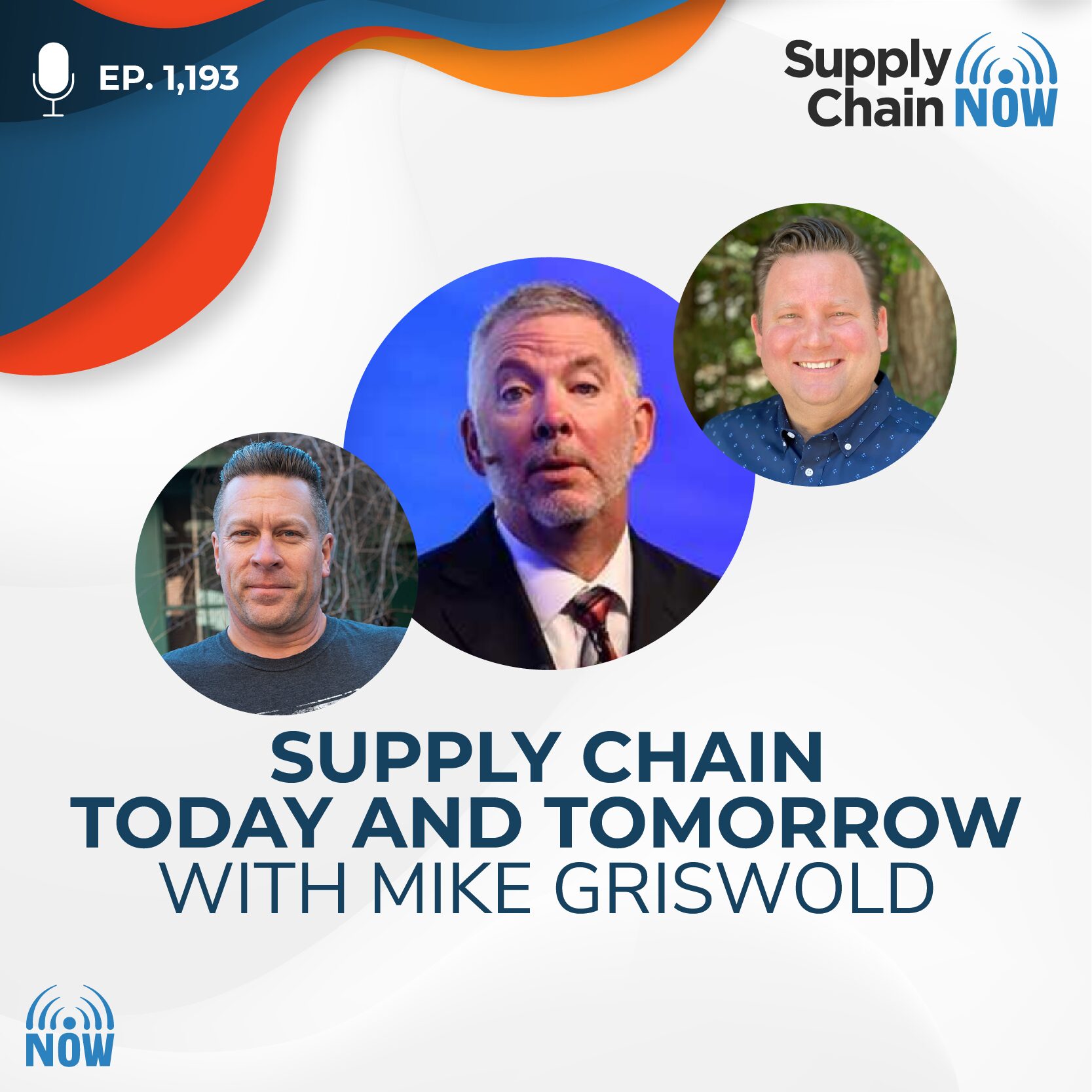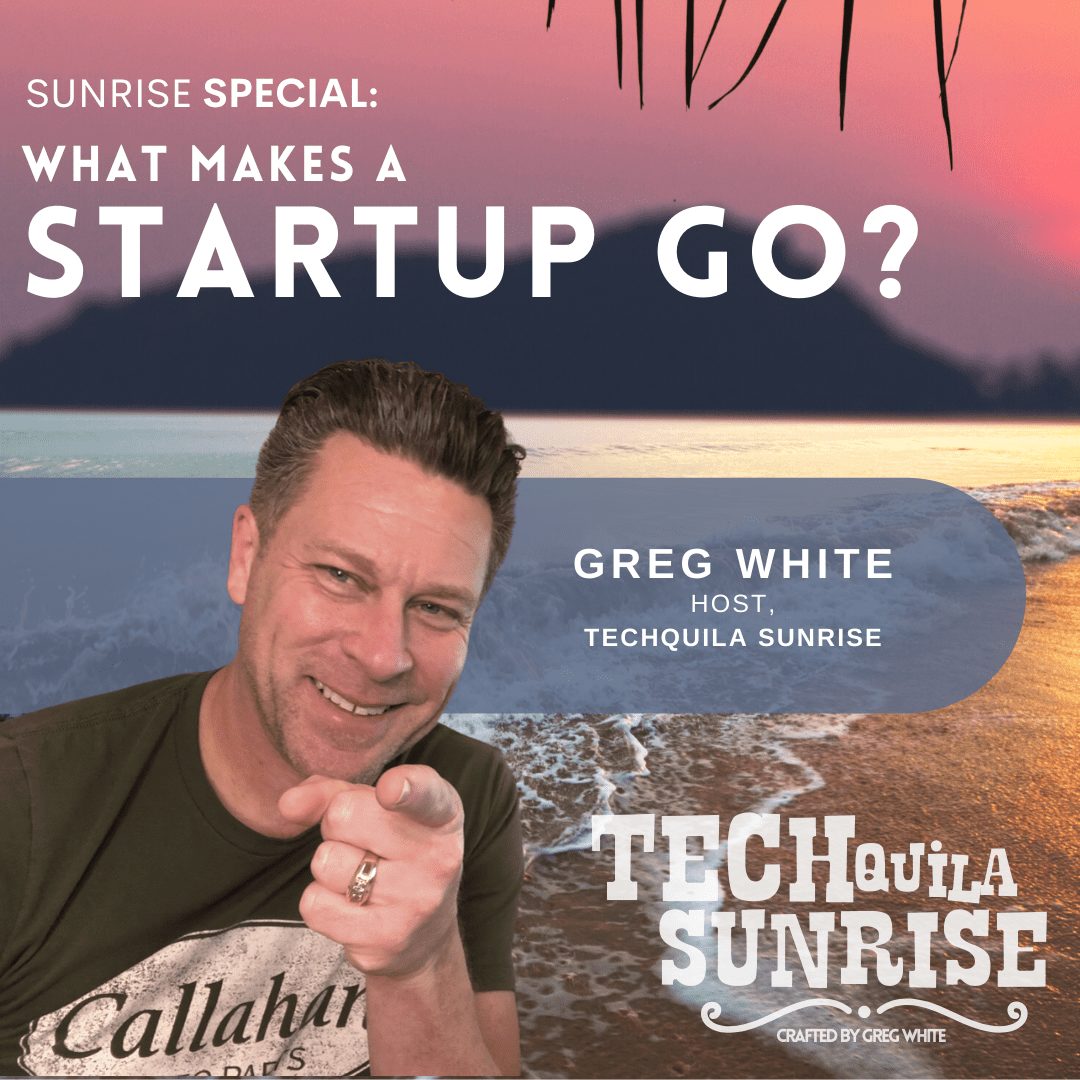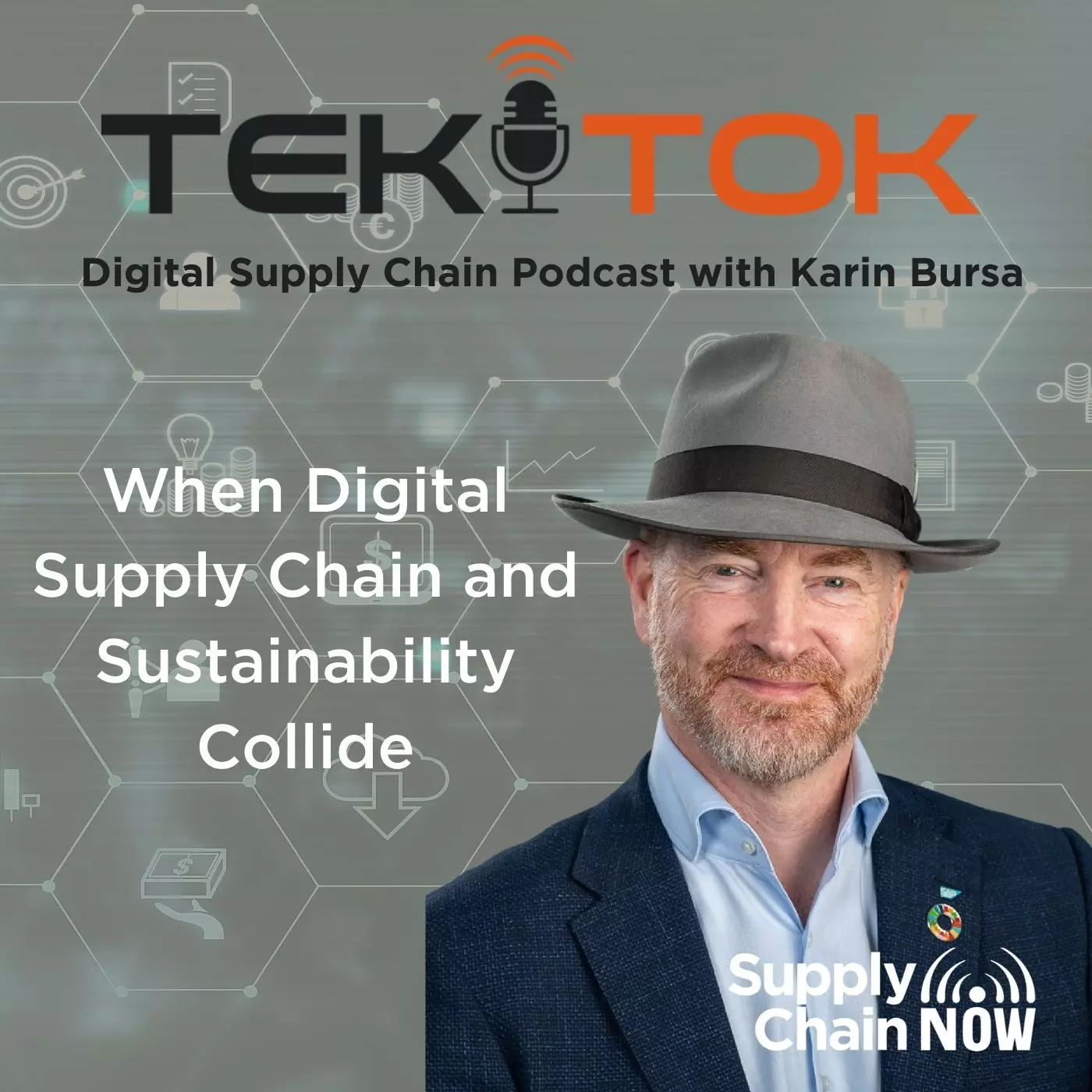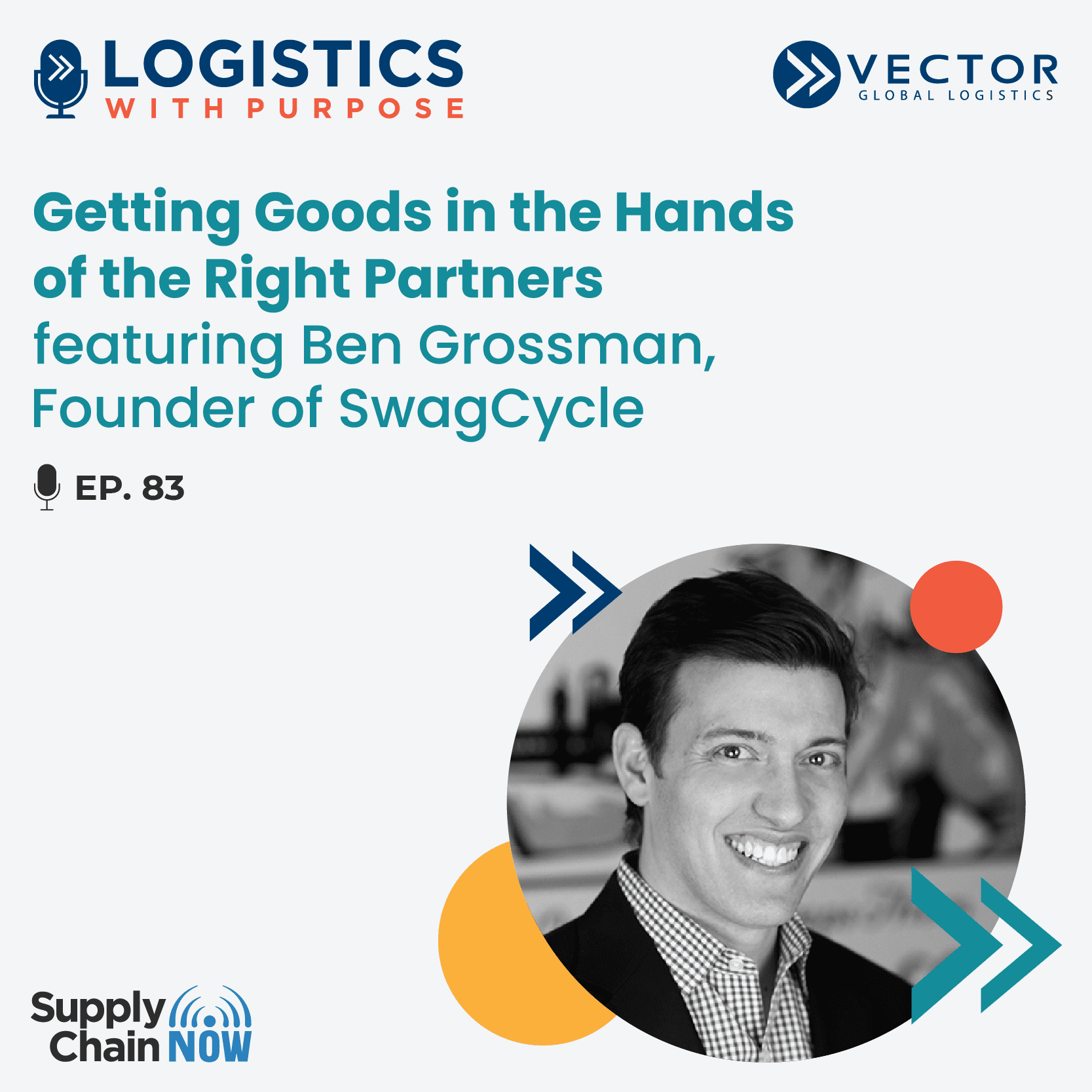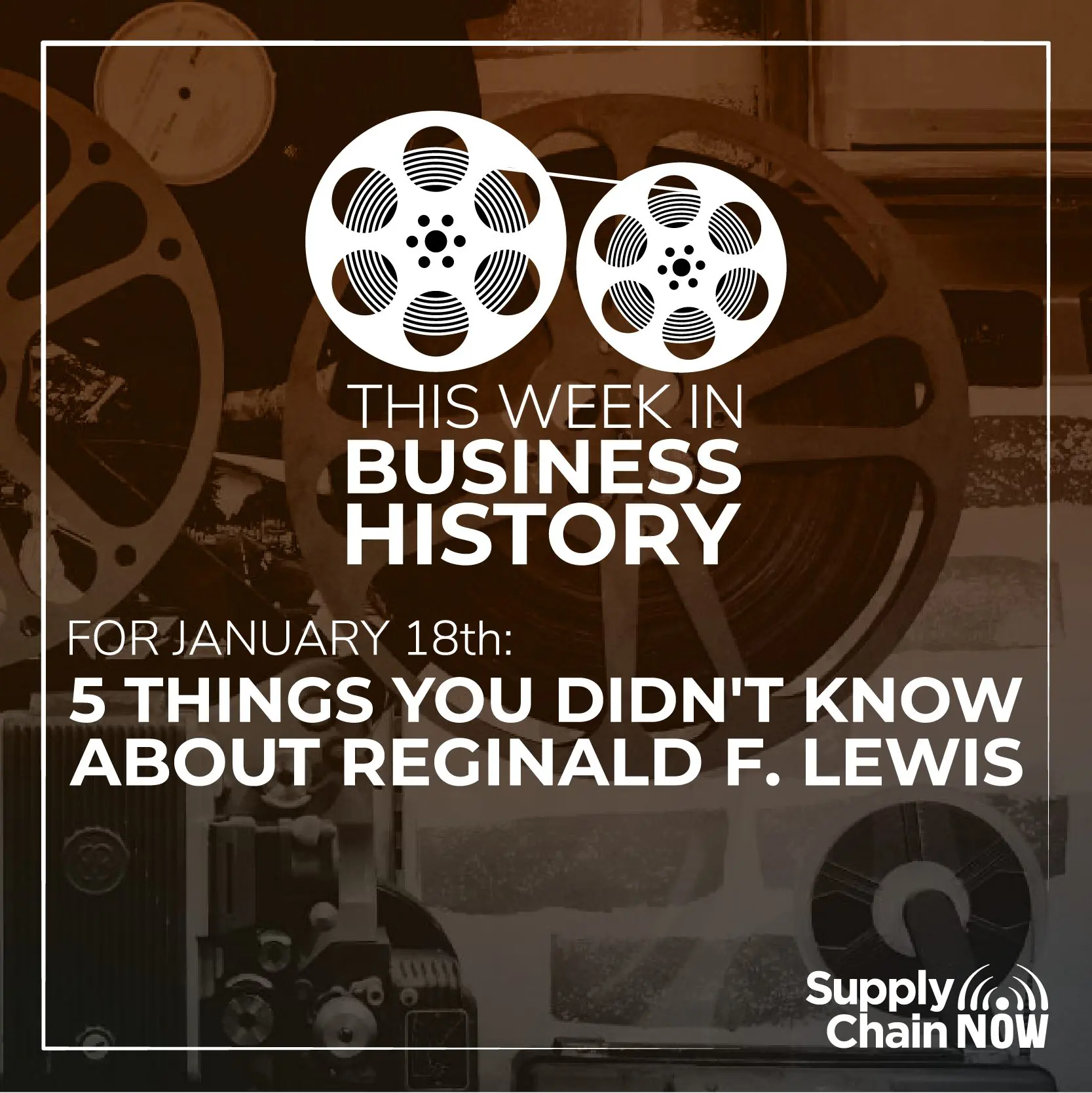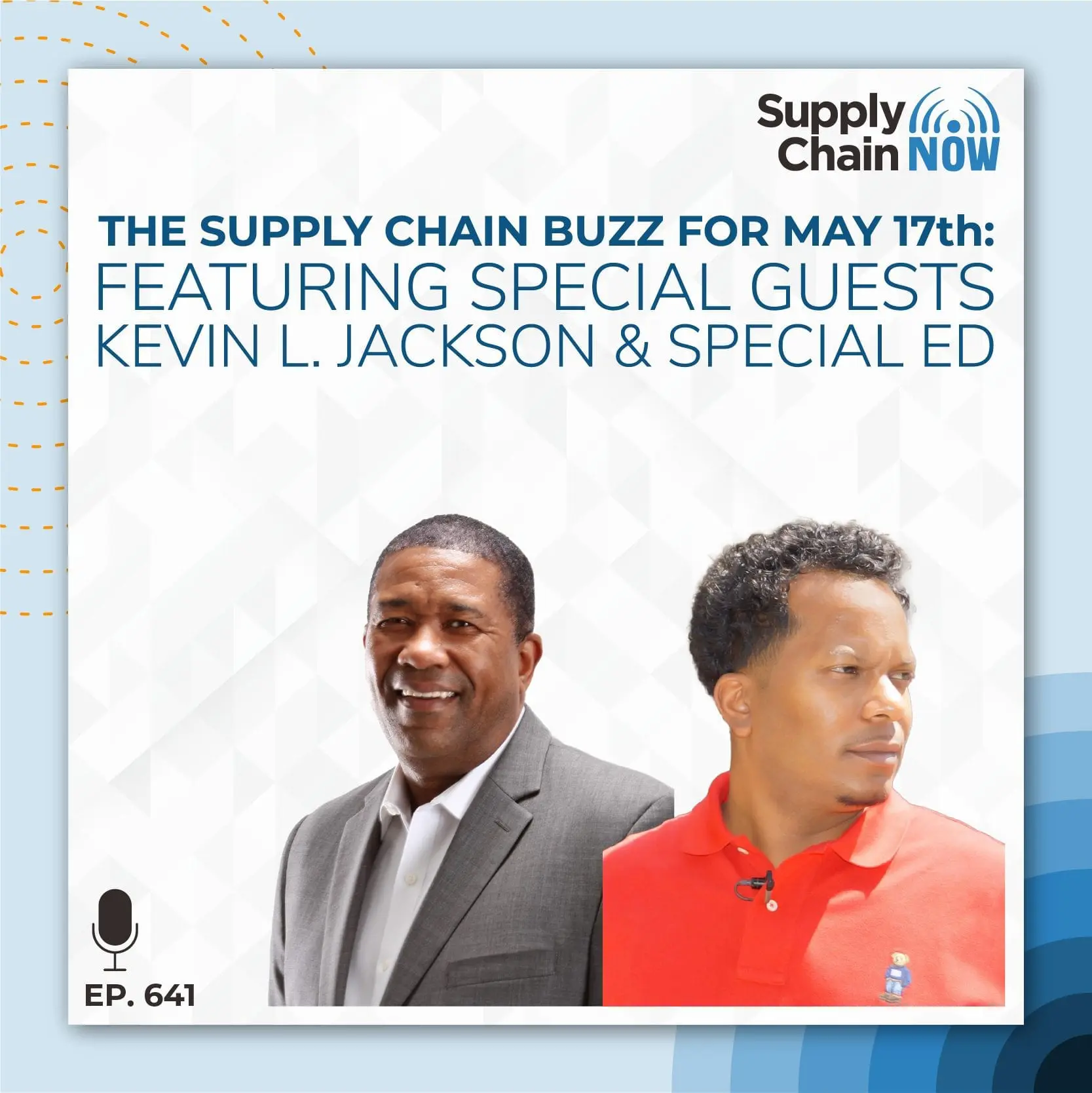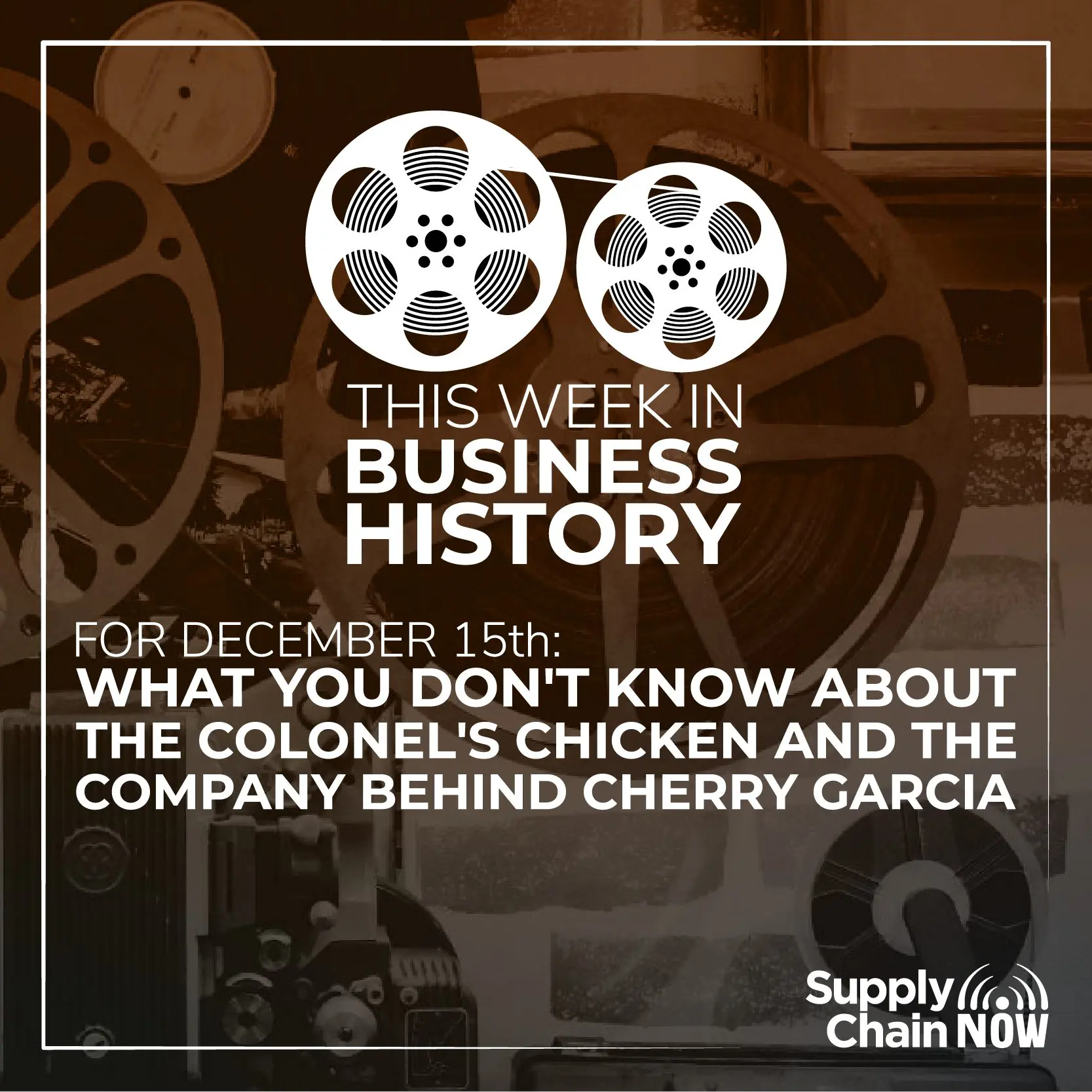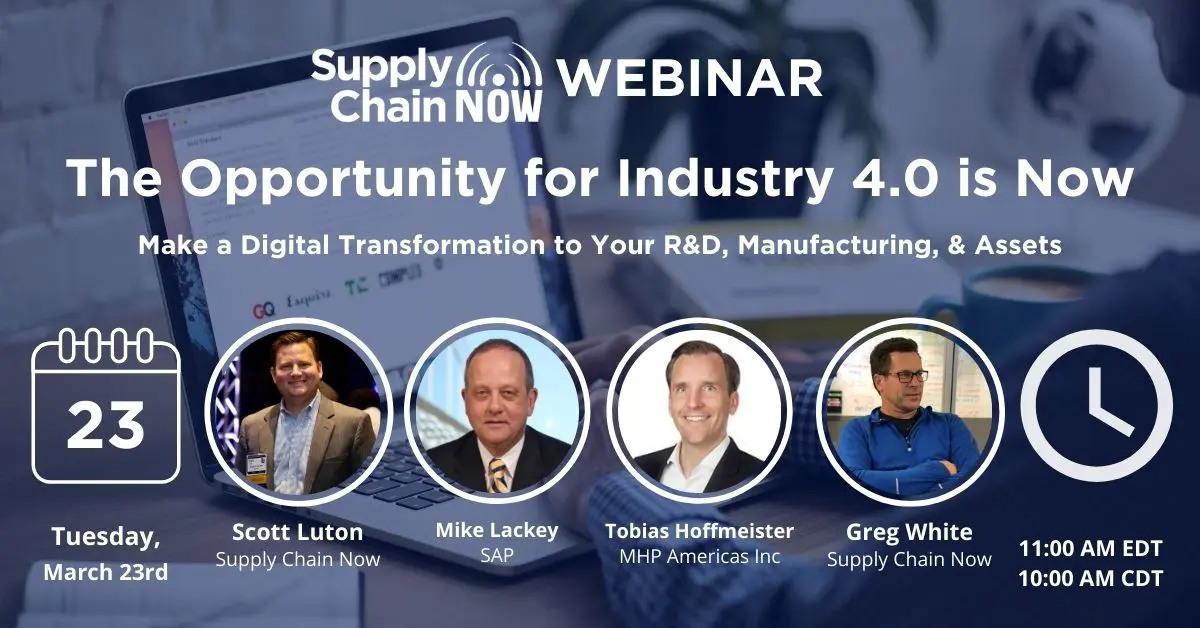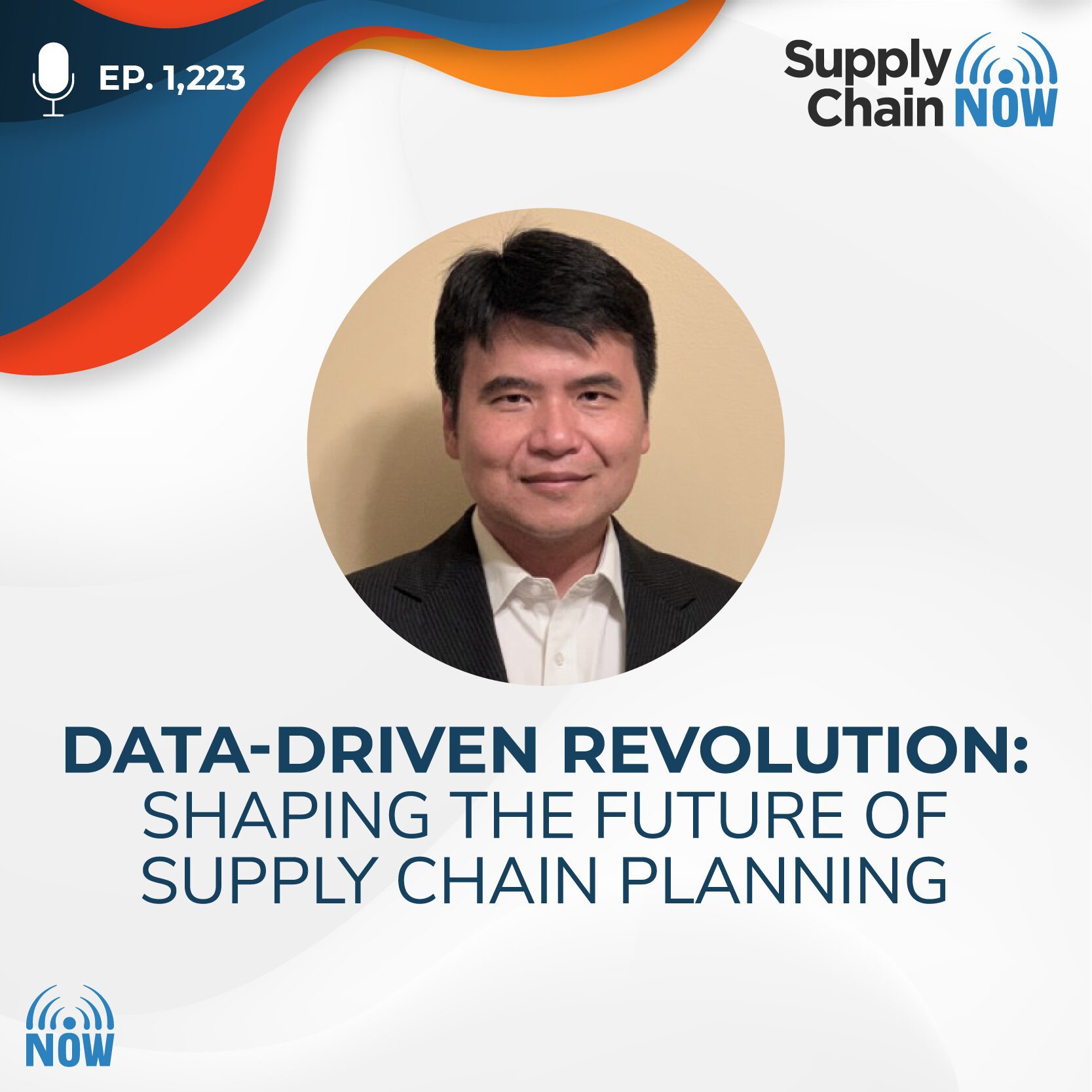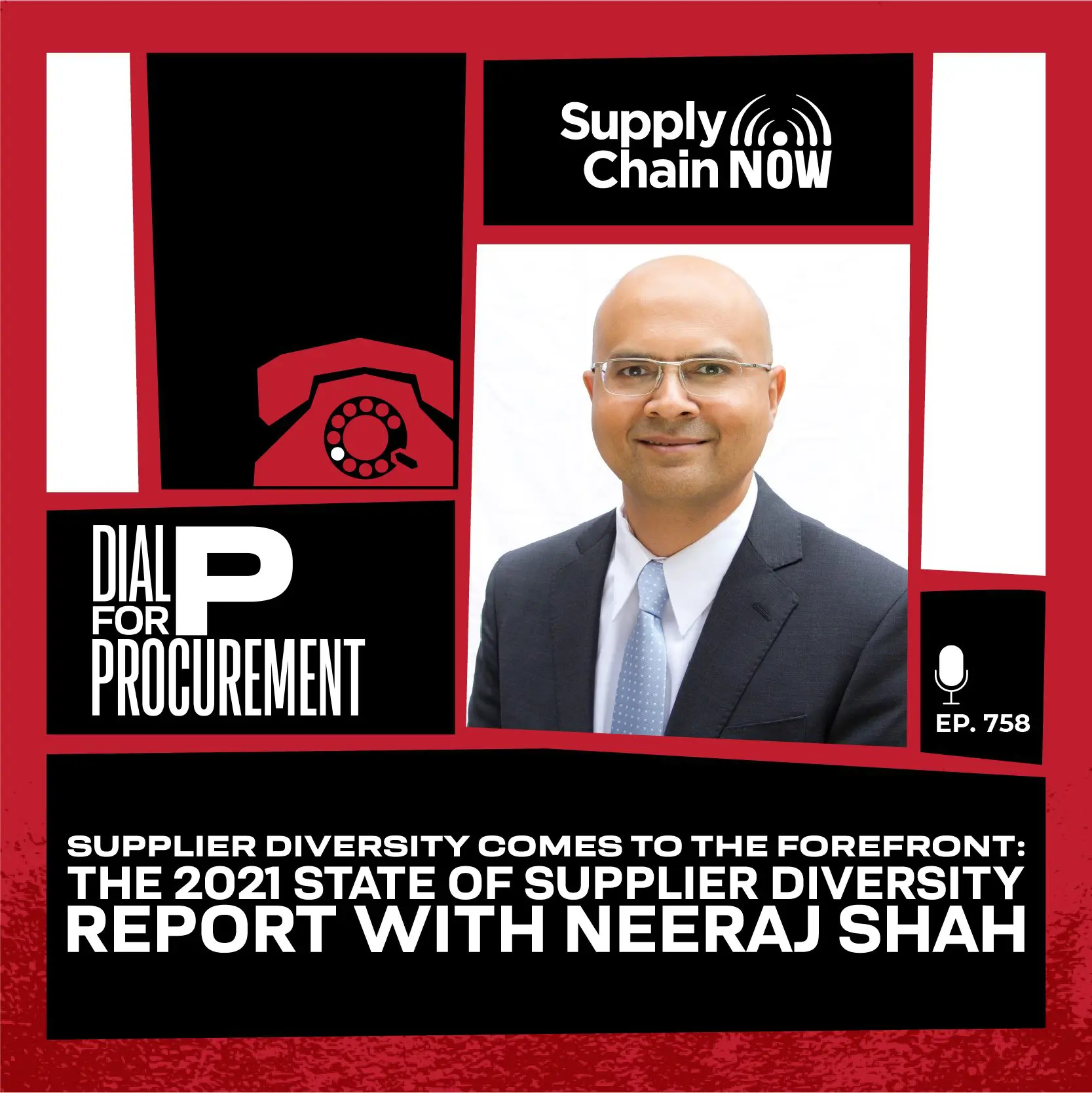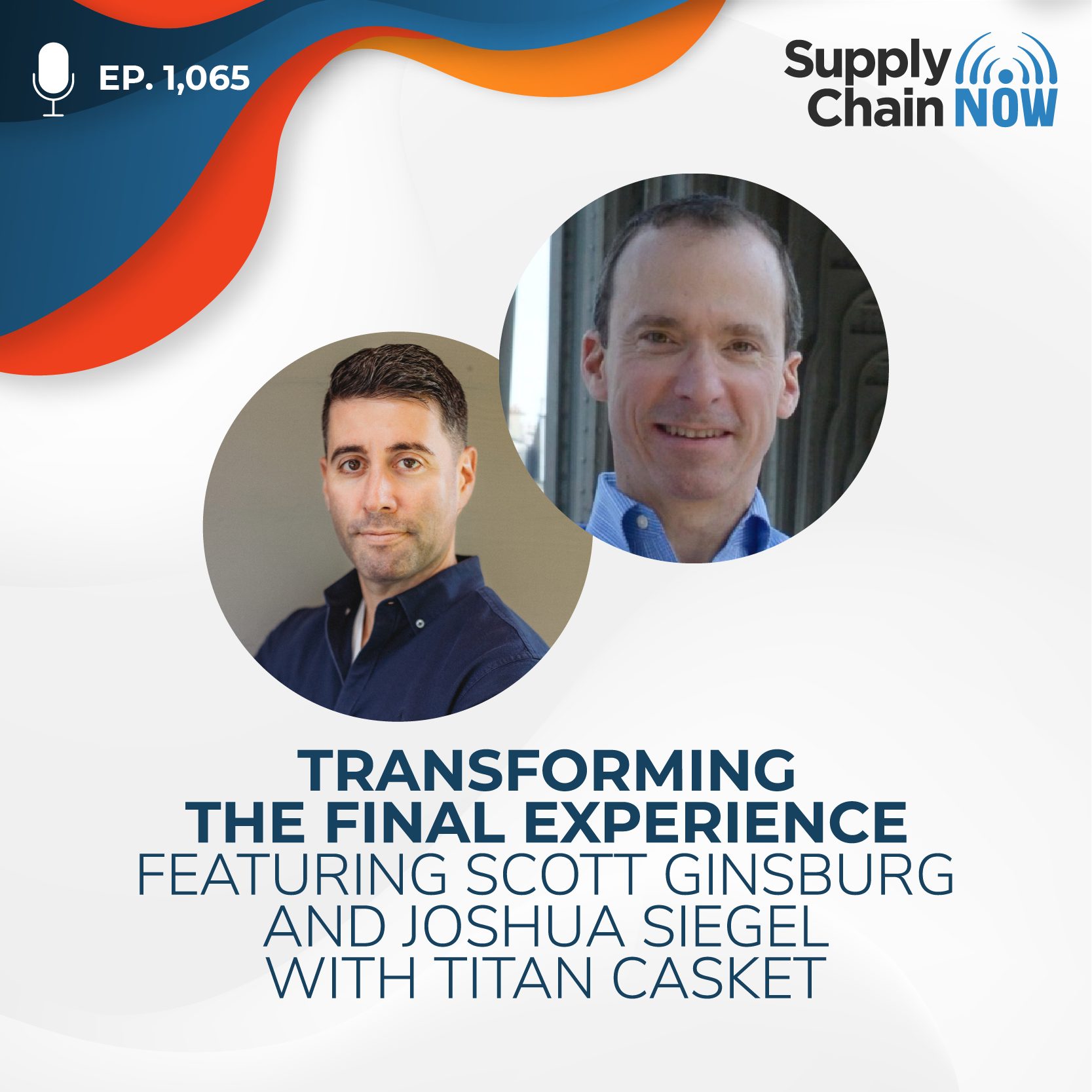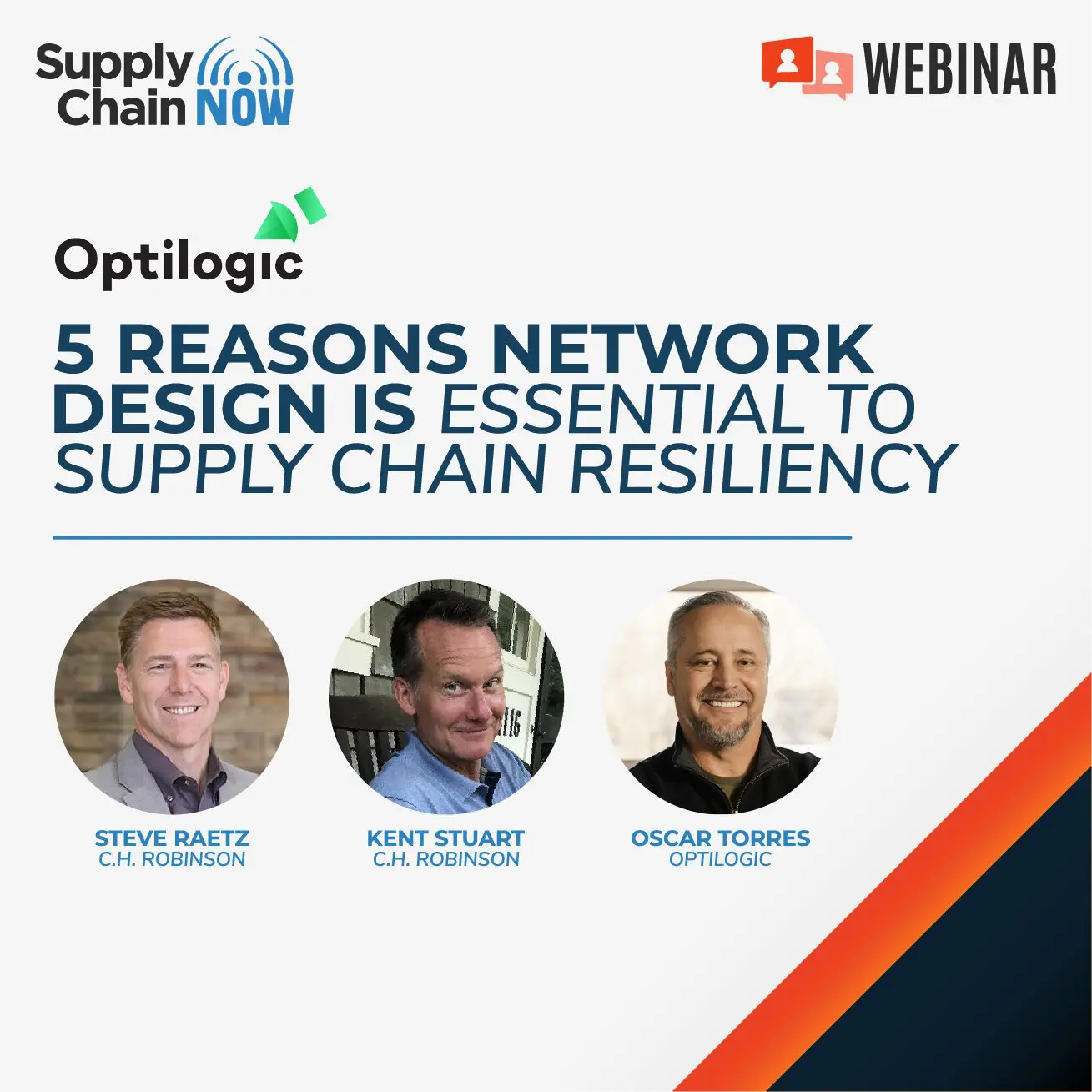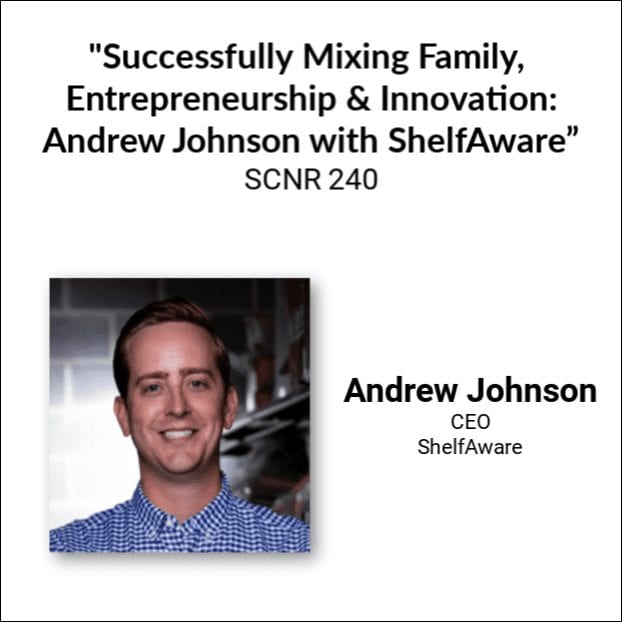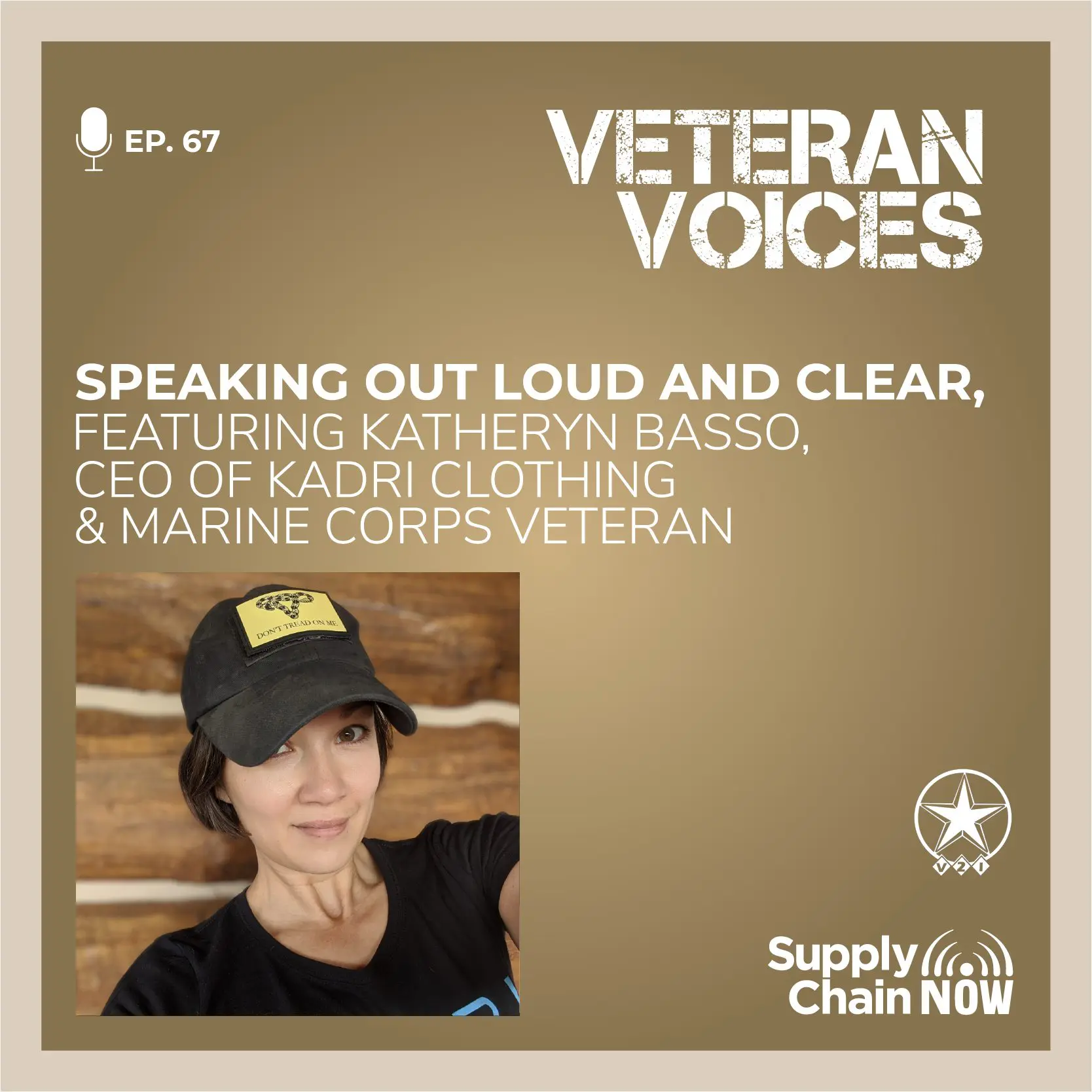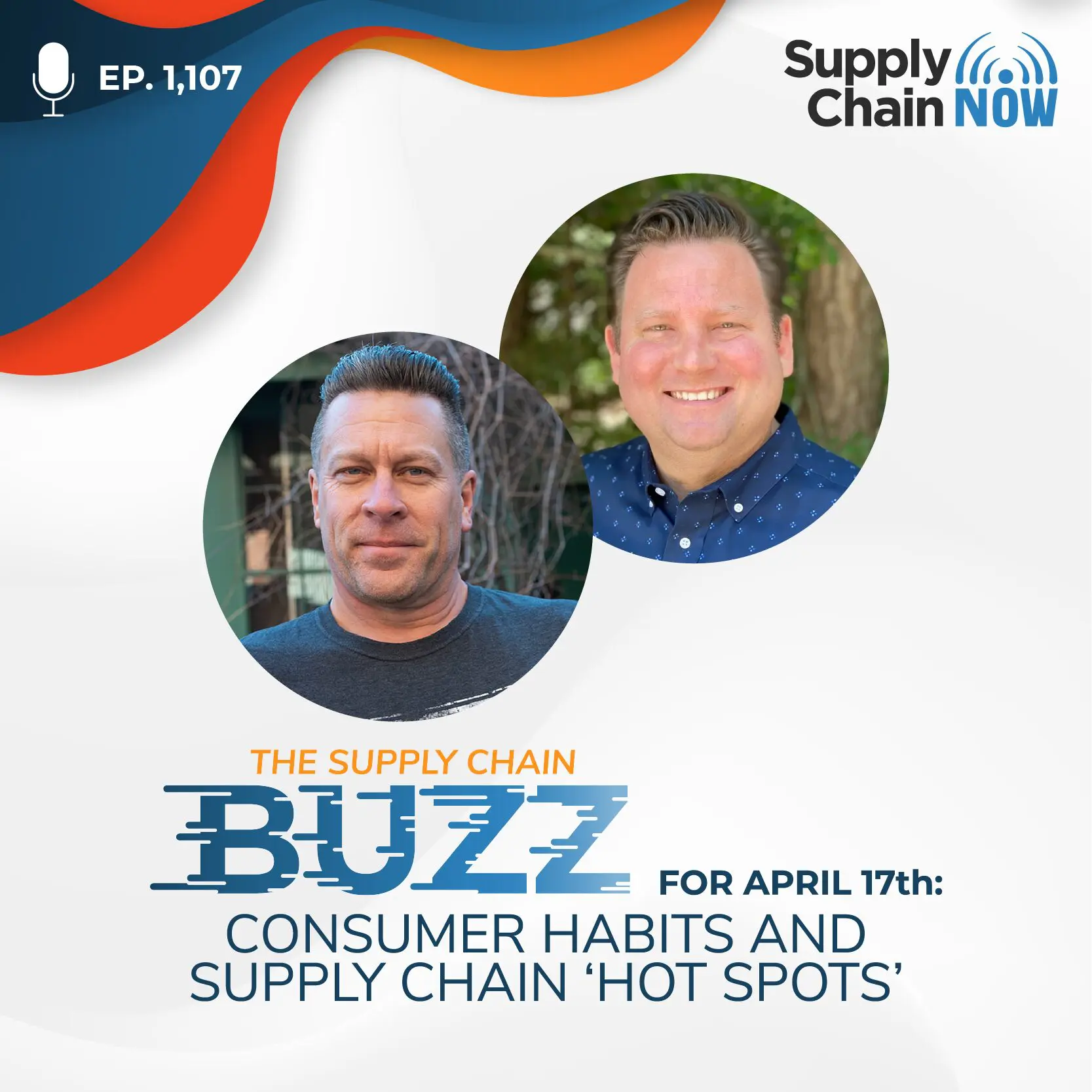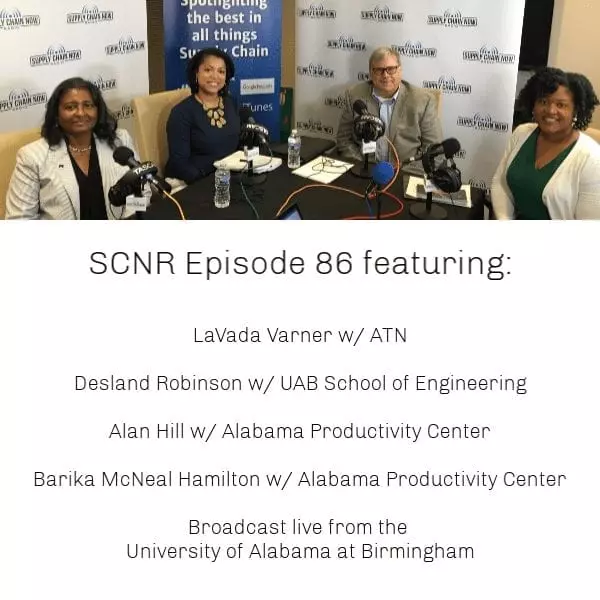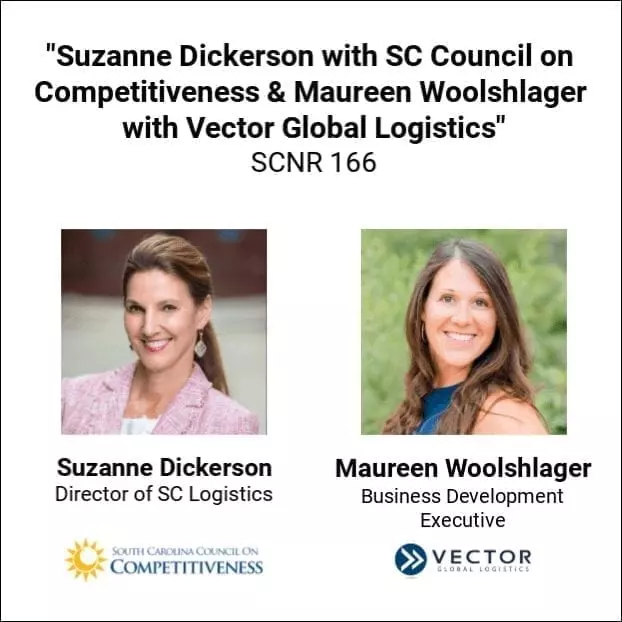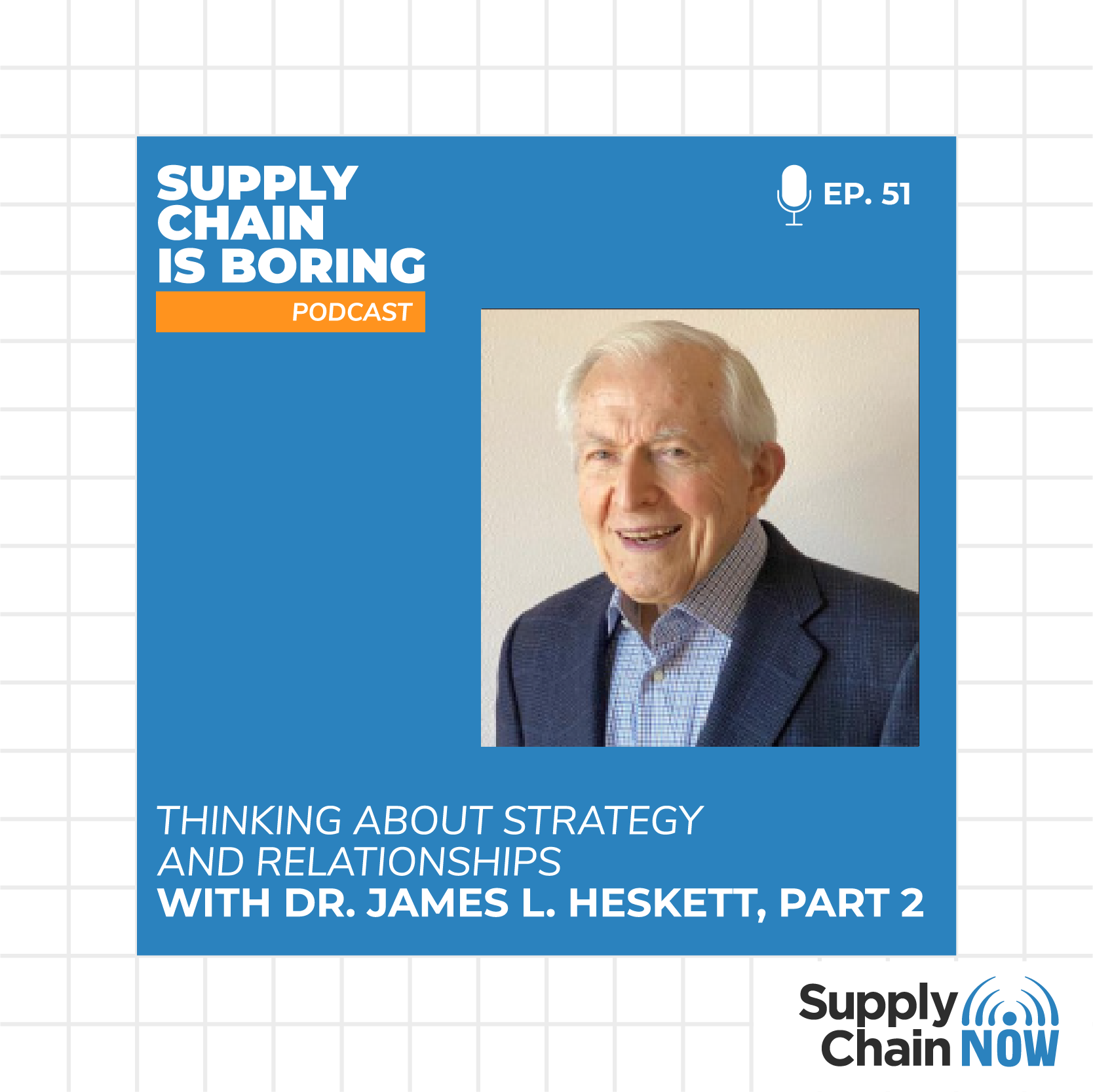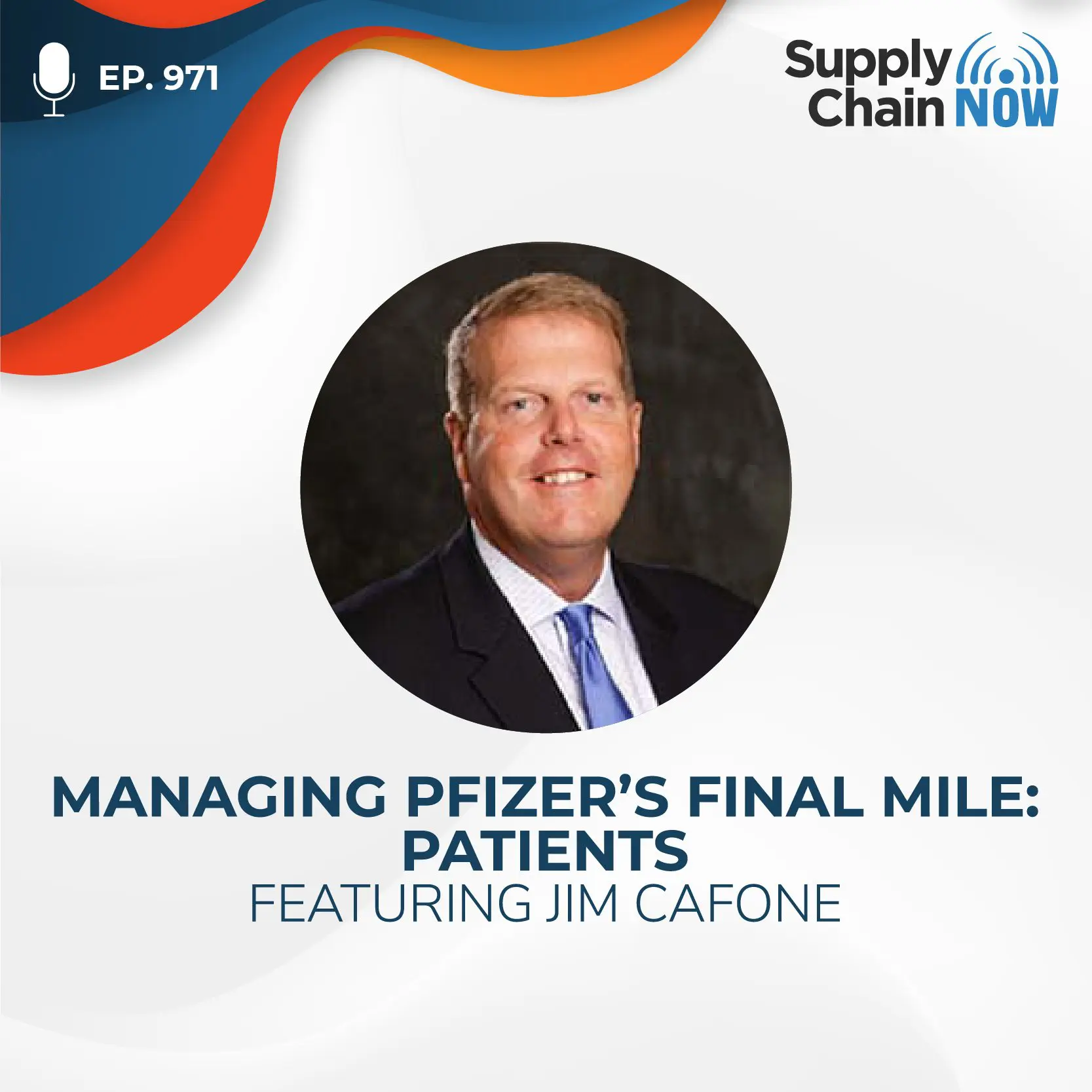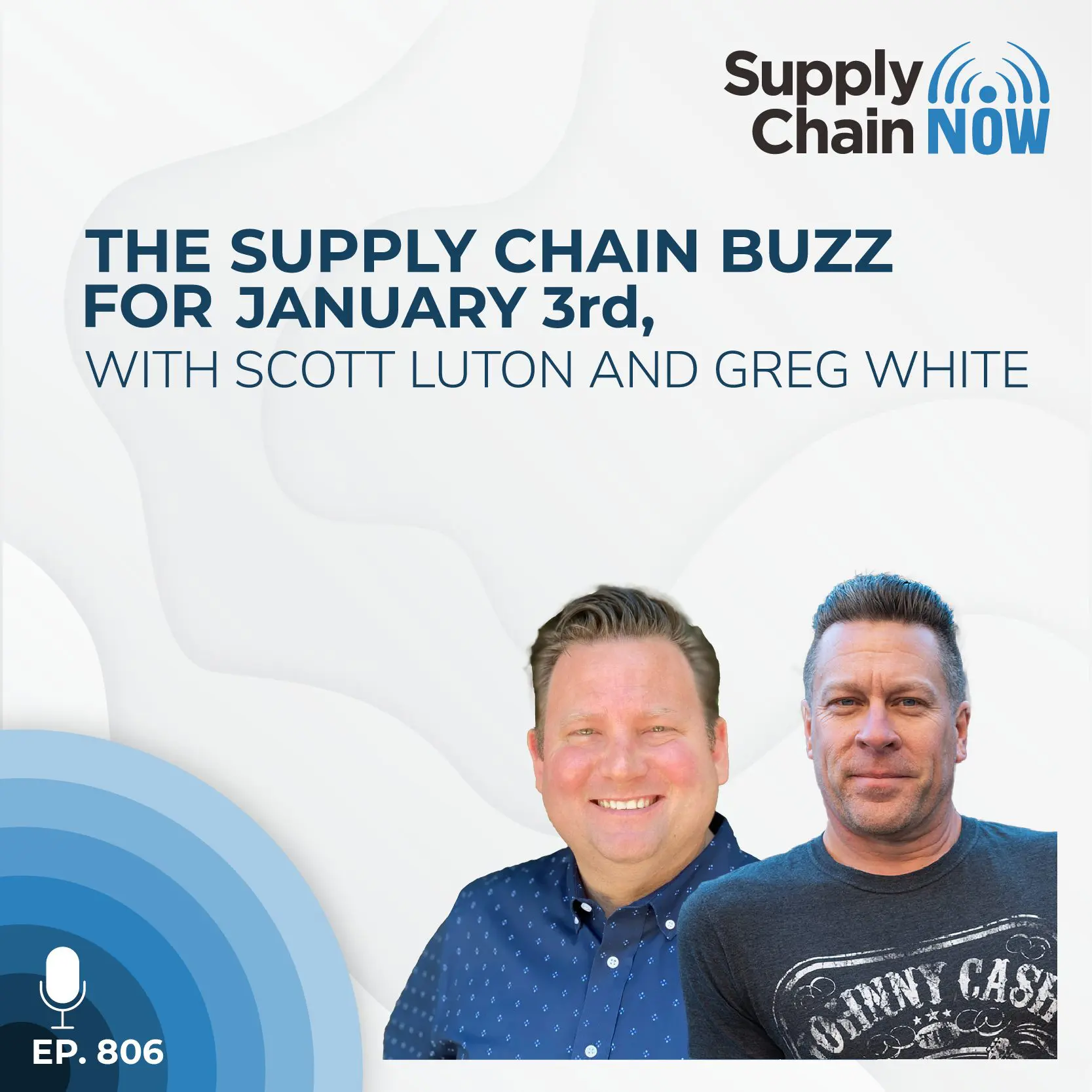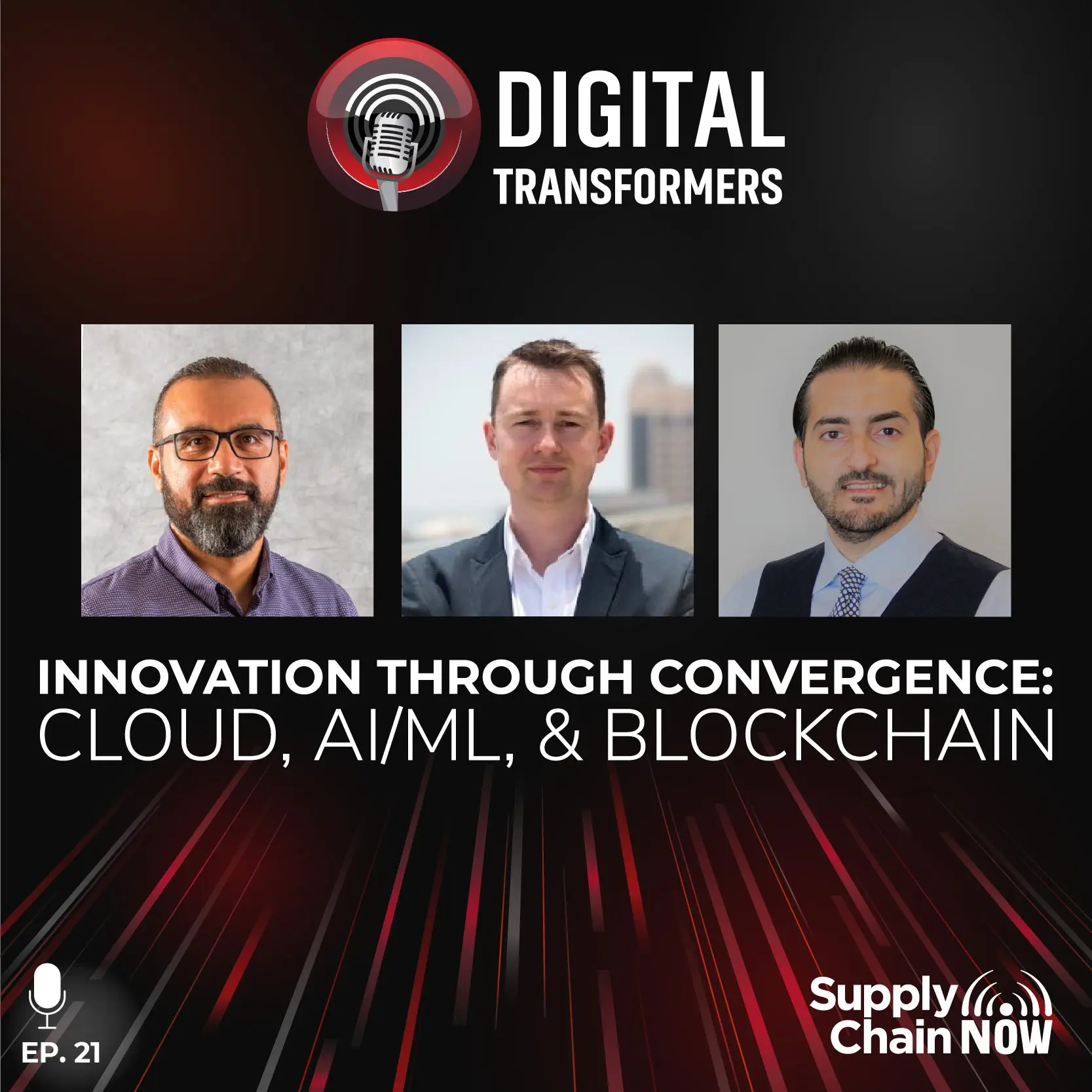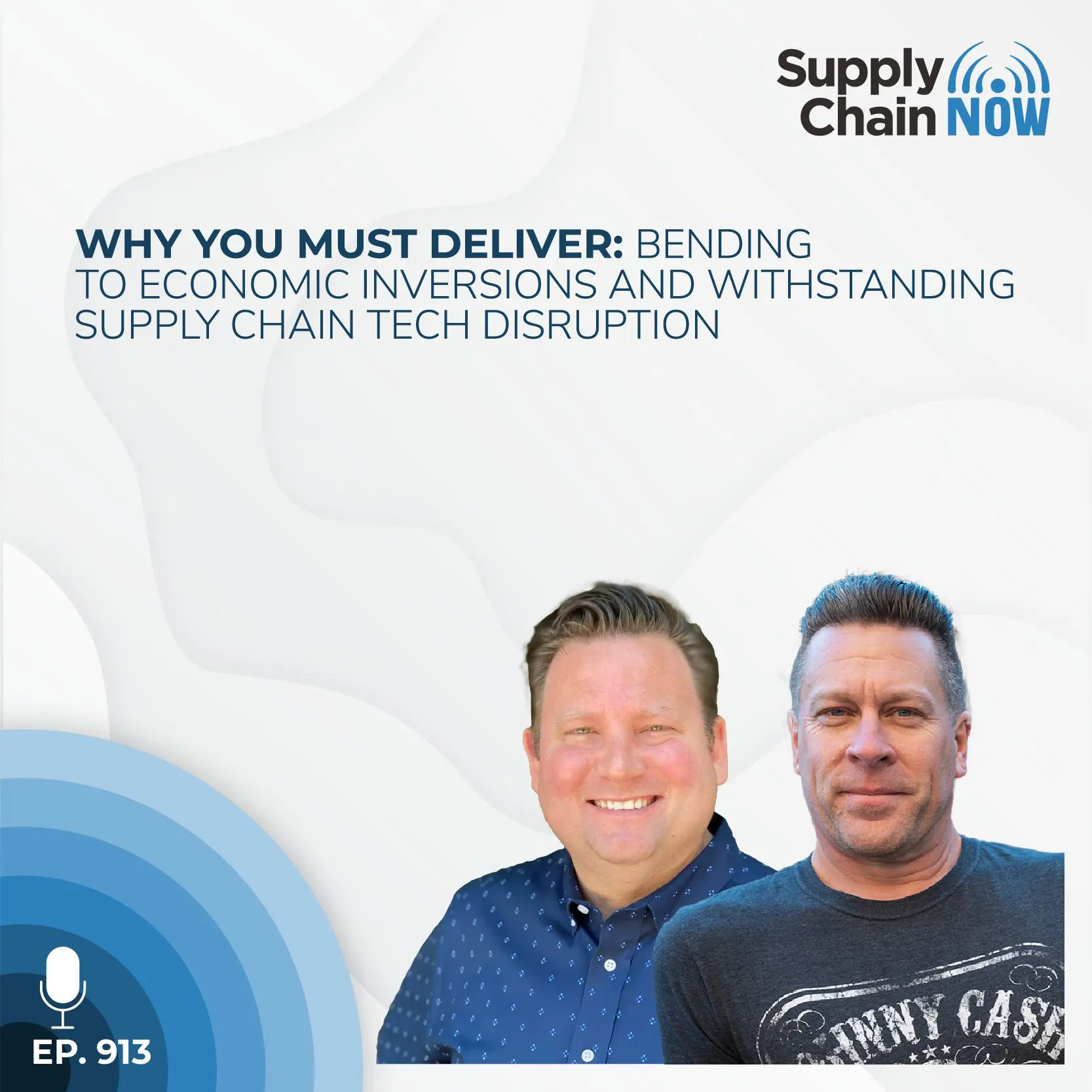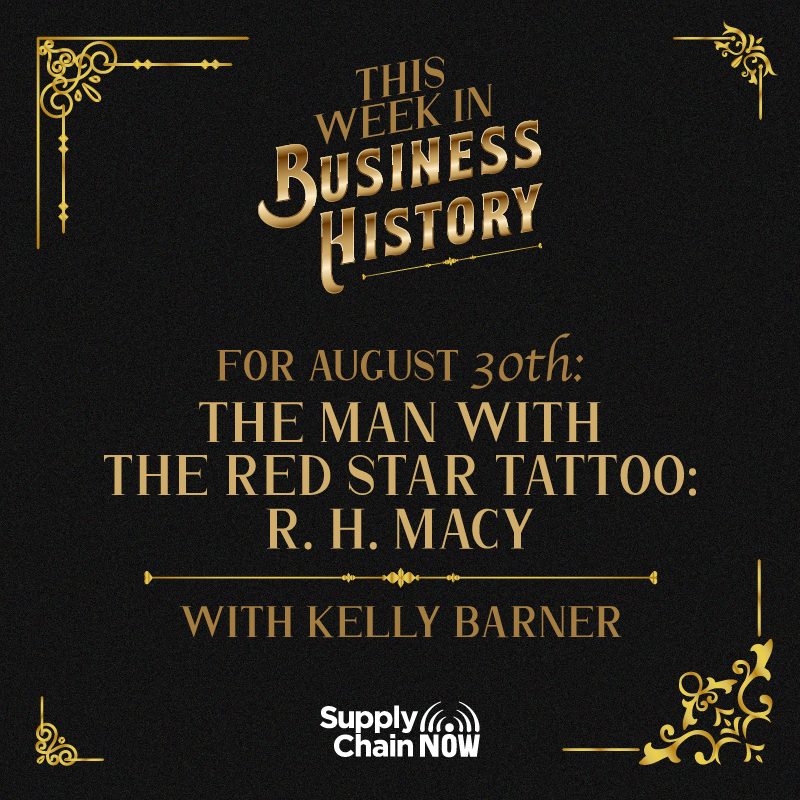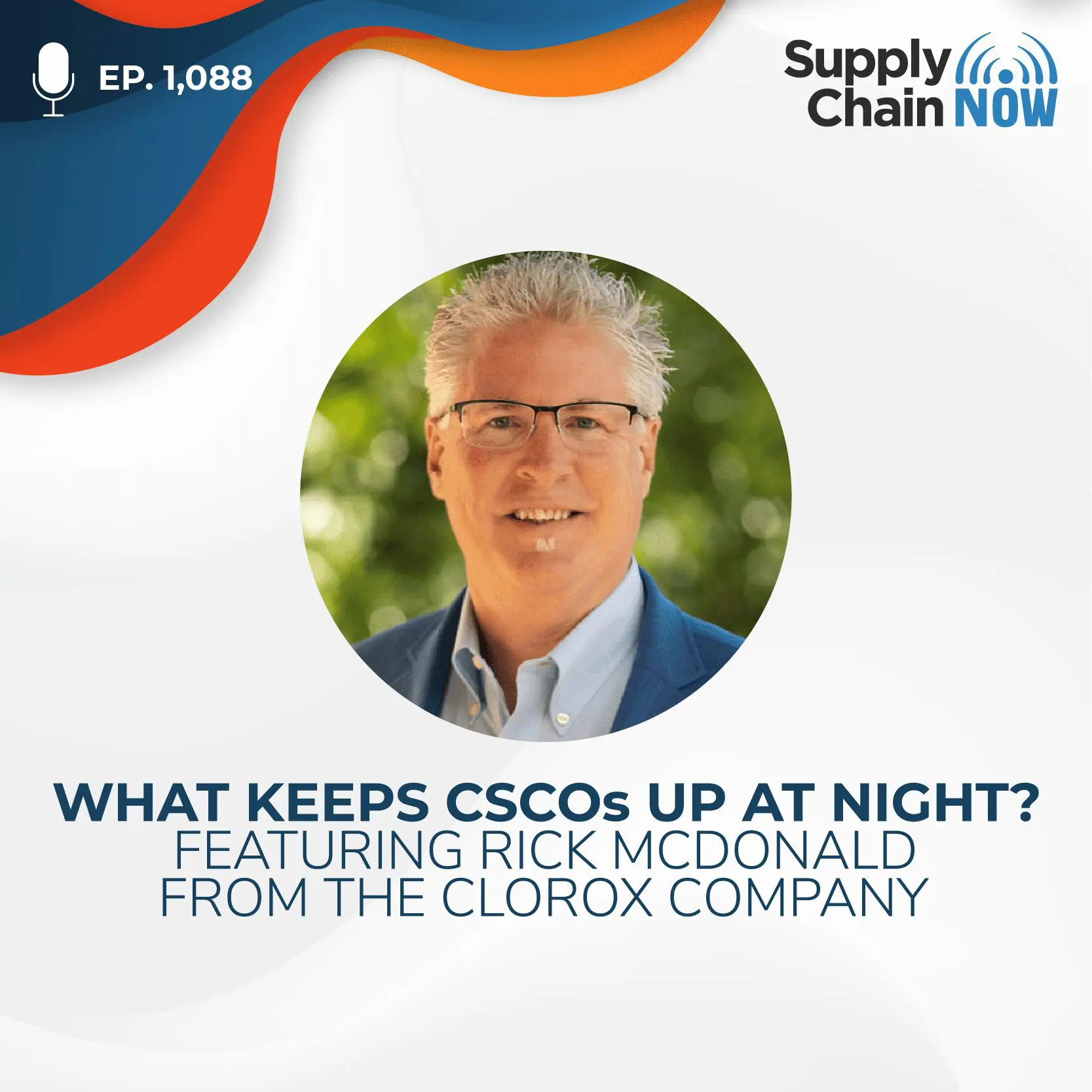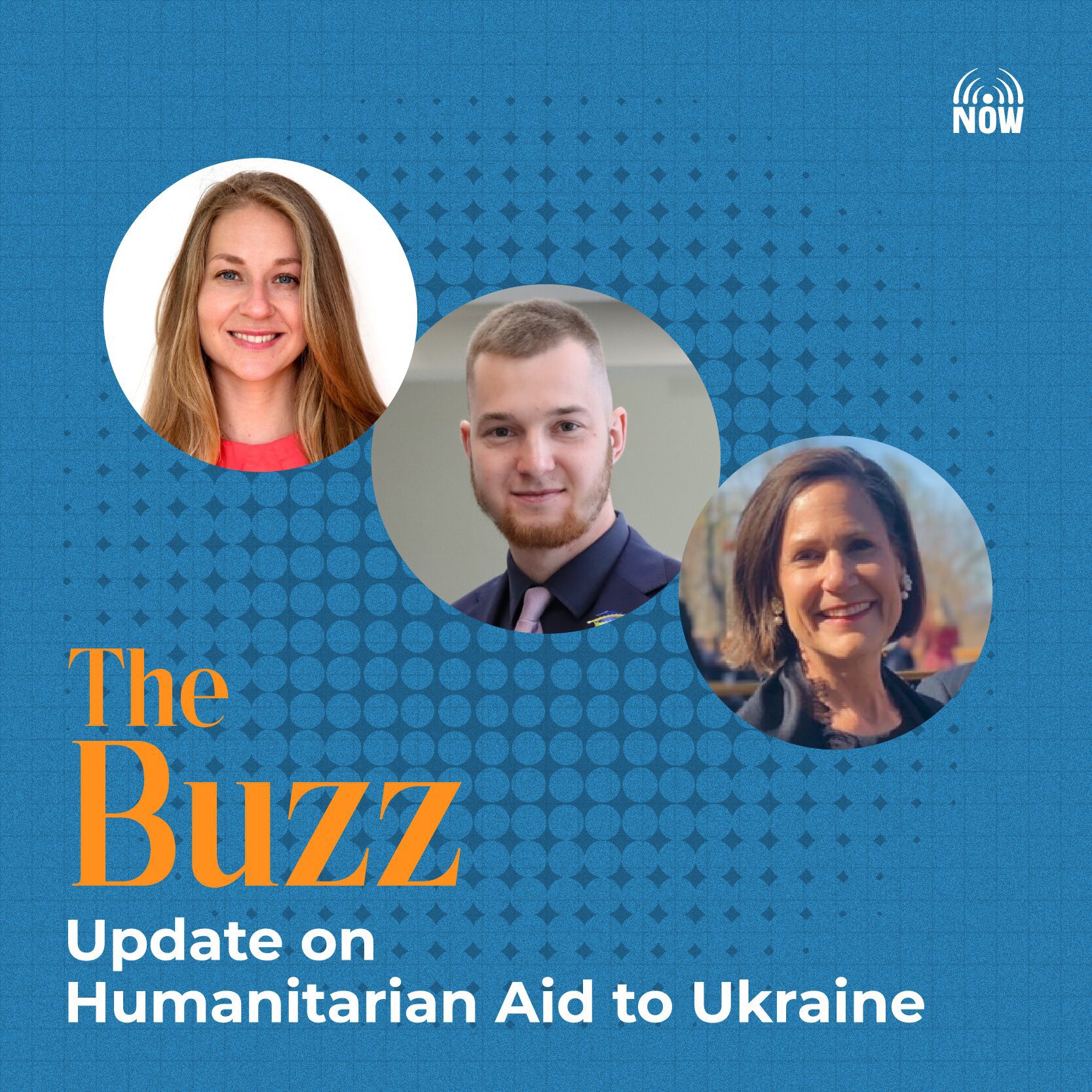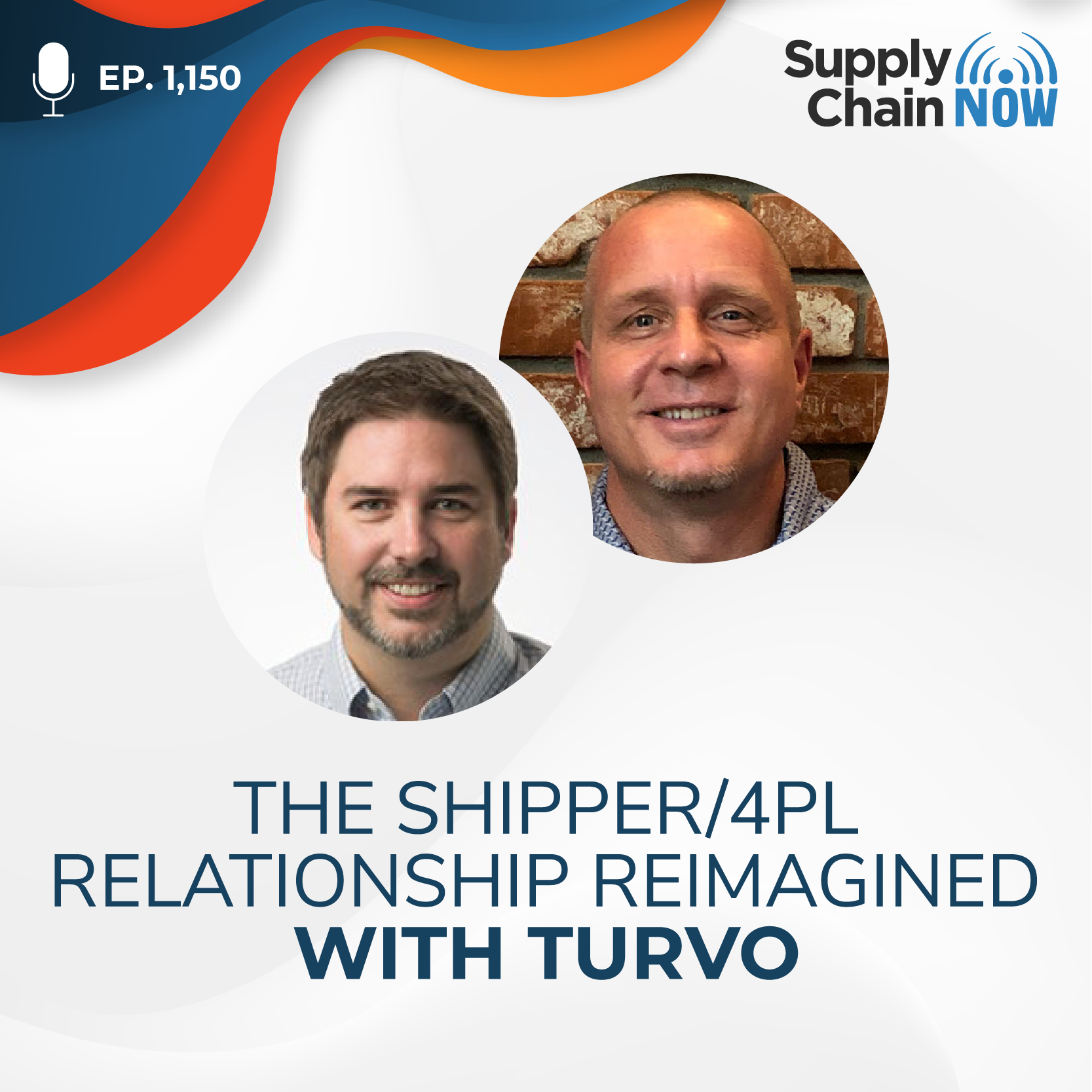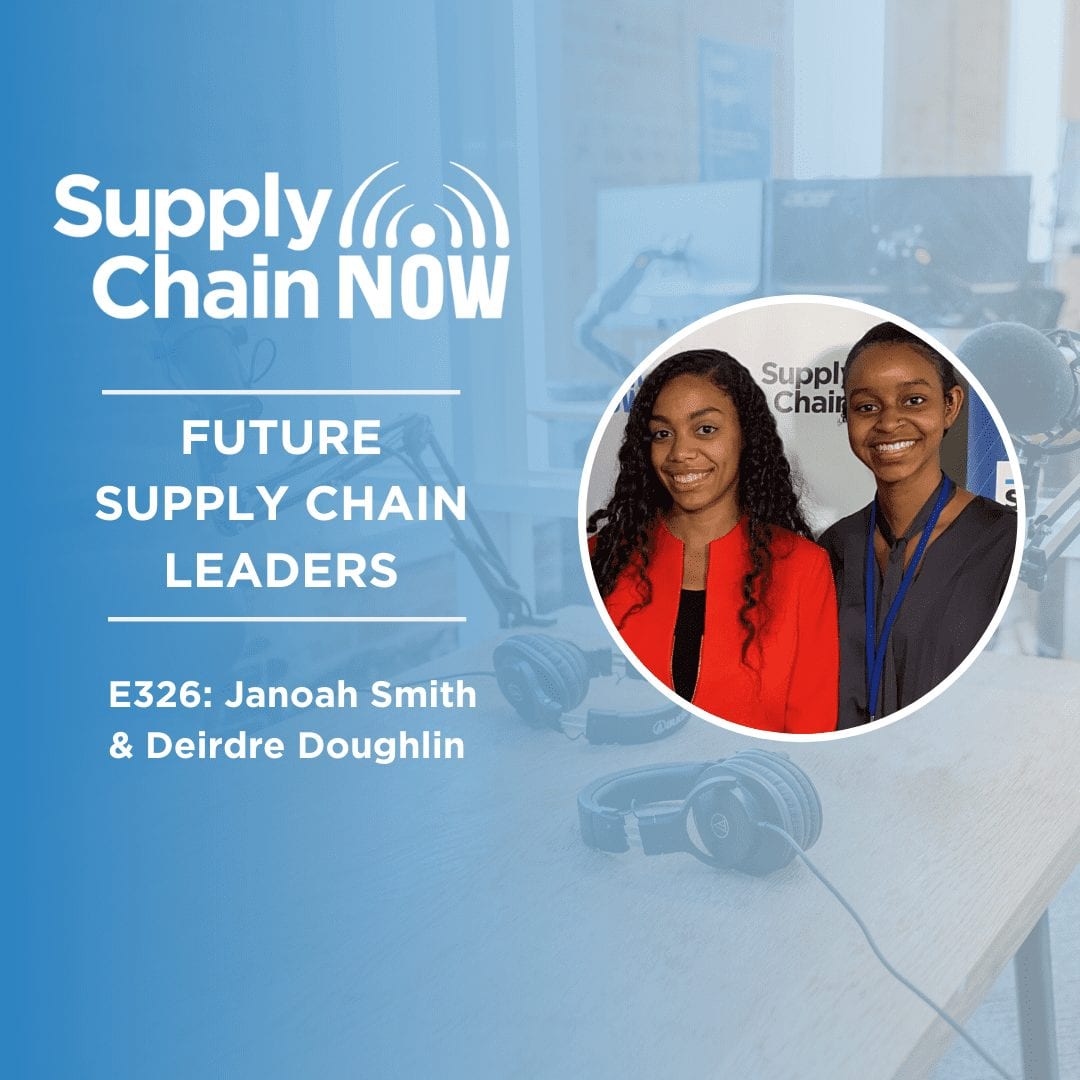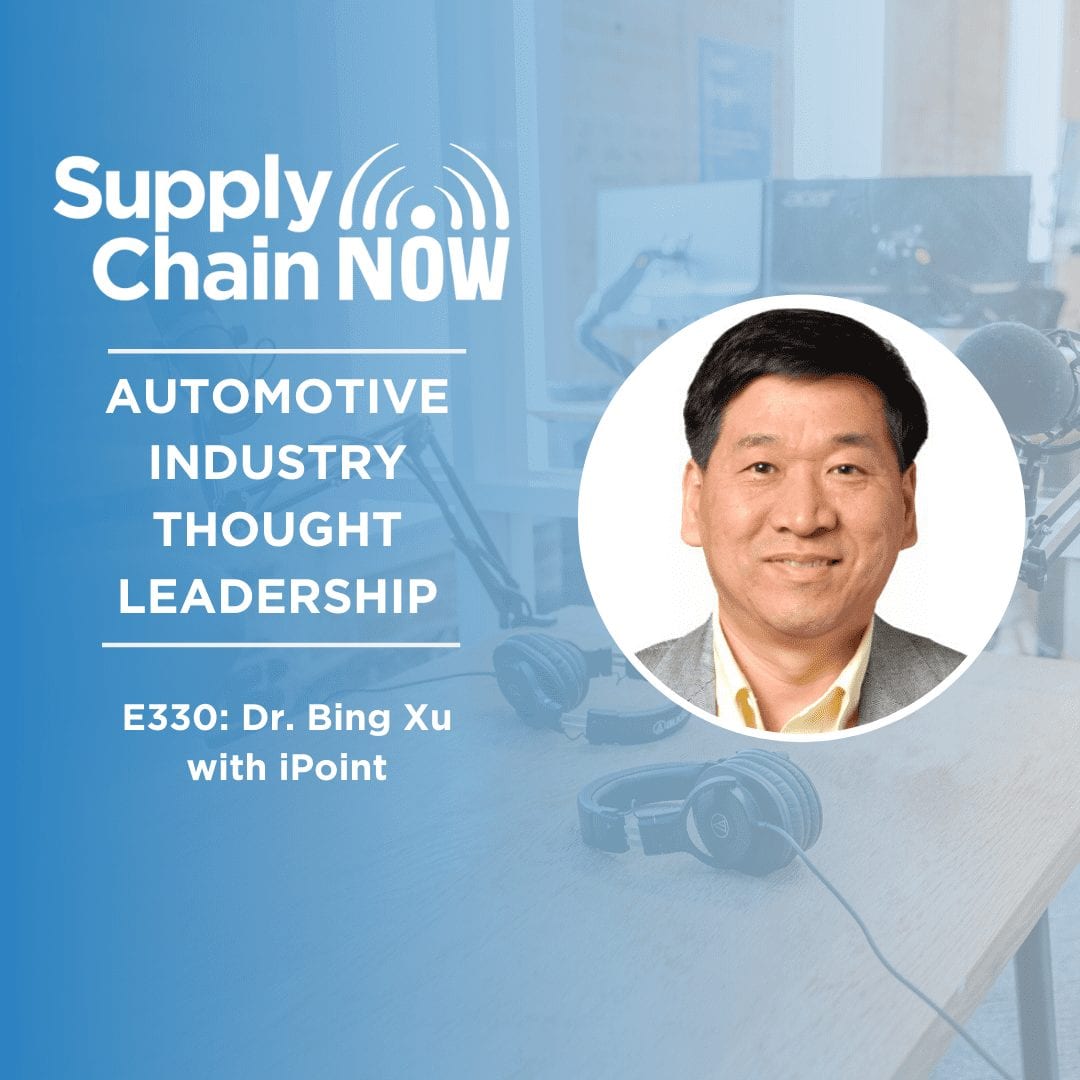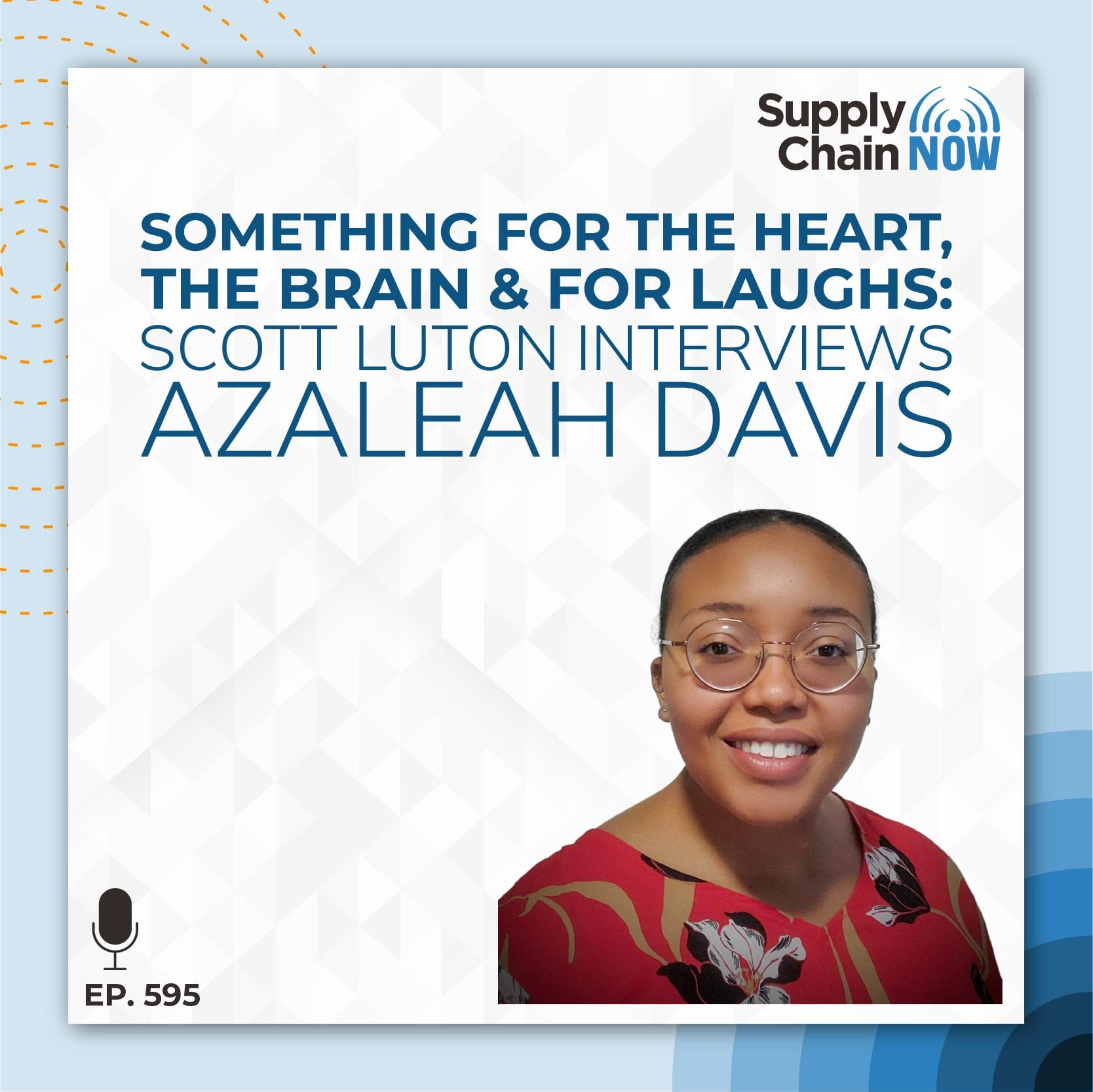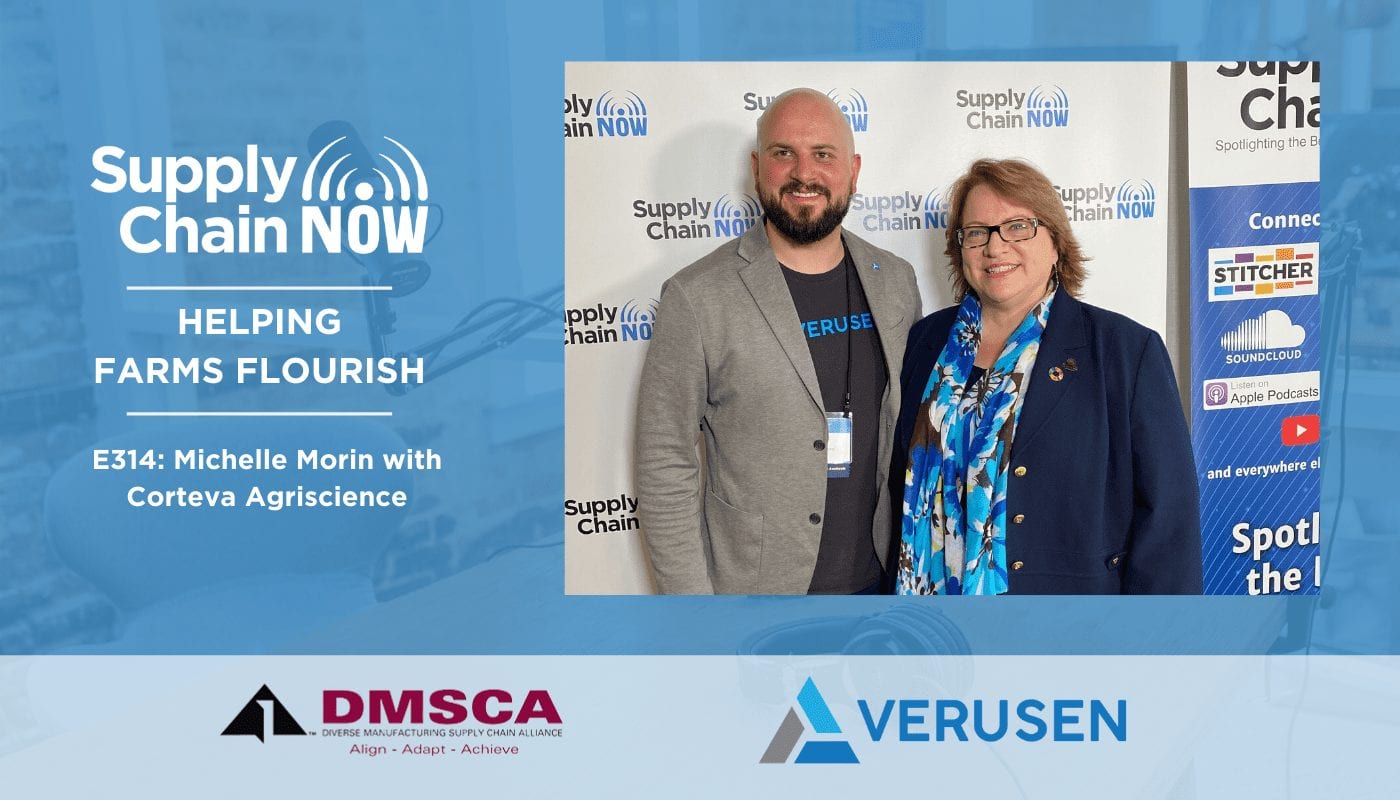
Episode Summary
On this episode of Supply Chain Now, Scott is joined by Paul Noble and broadcasts live from DMSCA, welcoming Michelle Morin to Supply Chain Now. Special thanks to Verusen for sponsoring the broadcasts.
Episode Transcript
[00:00:05] It’s time for Supply Chain Now Radio. Broadcasting live from the Supply chain capital of the country, Atlanta, Georgia. Supply Chain Now Radio spotlights the best in all things supply chain the people, the technology, the best practices and the critical issues of the day. And now here are your hosts.
[00:00:29] All right. Good afternoon. Scott Luton was supply chain. Now welcome back to the show. We aren’t broadcasting live from Atlanta, Georgia today. We are broadcasting from beautiful Scottsdale, Arizona, where we’re continuing our coverage of the Manufacturing Supplier Development Conference hosted by Dembski. The diverse manufacturing Supply chain Alliance. If this isn’t on your radar. Be sure to check him out at Deum sca dot u. S. So before we get started. Quick programing note for our audience. You can find us wherever you podcast from YouTube, Spotify, Apple podcast, you name it. Be sure to subscribe so you don’t miss a single thing. So welcome in my special co-host here today.
[00:01:13] Sitting in for one and only Greg White, we have Paul Knobel, CEO and founder of Verusen. Paul, how you doing? I’m doing well. It’s so good to be here. And such a break from the cold and rainy weather in Atlanta. It really is. And, you know, we haven’t had a chance to get out and explore Scottsdale. We’ve been busy talking with thought leaders and getting their thoughts and getting some presentations and keynotes, but they chosen a beautiful venue here. So no need to go far, but just out. We’re staying on the compound. Yes, right.
[00:01:42] All right. So Verusen, of course, not only is our our sponsor, but a little tidbit about them. They’re powering a ad driven data harmonization globally. They’re knocking out bad data, one company at a time. Right. That’s what we’re trying to do. Fight and never fight. Learn more at Barazan dot com. So, Paul, we square about we’ve been here about a day now, 24 hours. You know, in our first three hours, we met more and tricking people, you know, that met the previous three weeks. So give us a one early takeaway thus far from from the limited time we’ve been here.
[00:02:17] Yeah. You see it on all the signage around. Is this kind of alignment collaboration in the spirit of that? Again, we’ve talked about it throughout our time here, and it’s something we talk about all the time. Is that so? Supply chain is such a collaborative part of these organizations, businesses and the ability for manufacturing companies and their key suppliers to get on the same page is a superpower and it’s going to be a competitive advantage more and more as organizations continue to grow. So seeing that in this intimate setting with so many great leaders, influencers in Supply chain and being a part of that’s been really cool.
[00:03:02] Agreed. Very well put. Greg is going to be all right. So given you a run for your money, Greg. Yeah. Watch out, Greg. So I’m really excited about this conversation here. I wish we could have taped the pre-show conversation that had a great episode of itself.
[00:03:19] But our listeners will have to be satisfied and delighted, I’m sure, with this conversation with Michelle Maureen, global procurement leader, Supplier Diversity and Sustainability with Court Harvath Agro Science. Michelle, how you doing? I’m doing fantastic. This is a beautiful place to be. It really is. And I think we share that in common. This is our both of our first times here in Arizona, is that right?
[00:03:42] Absolutely. I always thought Arizona would be too hot into uncomfortable. It’s absolutely delightful. The temperature is amazing. The sun went down last night, got a little chilly. I got excited. I grew up in Maine. It was my kind of temperature. Everything’s gorgeous. I’ve never seen so many cactuses in my life. I think it’s called cacti like houses, but it’s absolutely amazing. The mesa here is a beautiful. The mountains that are surrounding. It’s really idealic and we’re getting a lot of work done.
[00:04:08] Yeah. OK. So that is a sign of things to come. We’ve enjoyed Michele story telling already. And if that doesn’t paint a picture, you’ve got a talent that Michelle Sheer got the story. Time with Michelle. More and more serious watching now. All right. So but you but equally as fascinating, if not more, is the Court Harvath story that we’re in. David Zet. And just a moment. But first, tell us more about yourself. You know, you said you’re from. From Maine. Where’d you grow up? And give us an anecdote or two about your upbringing.
[00:04:39] So I grew up in Maine and it was a beautiful place to grow up. But they roll the sidewalks up as soon as it got dark. Right. So as soon as I could, I left and went to Boston, where I spent two decades and so loved Boston loved the hustle and bustle of the city. Love the full diversity that’s represented in a major metropolitan center. Had some pleasure. Of working and teaching and having my own business for a while, spent about two decades working with law firms and our government in some big legal problems. The good news is that we didn’t make the problems worse. We helped resolve them. And I spent all this time in a space where the bad thing happened and you had to work on the fix.
[00:05:23] And I kept wondering, why don’t people use law to make things right the first time? Yeah. And how do you do that? And so I went to MBA school and got an MBA and learned more about business and oh, my goodness gracious. There are processes and scorecards and methodologies of getting business right the first time. So I love that at this point in my career, I’m now in this fantastic new startup corporation working in the oldest agricultural industry that ever existed in the world, working to do things right the first time, not fixing problems, but paying it forward to help farmers feed the world.
[00:06:02] So before we talk about Court Harvath, I know Paul is always curious about kind of that professional journey. You’ve already been alluding to. What does that you that when you hear her background kind of before supply chain, I guess I’ll put it. What does that there bring brings to the table? Yeah. It’s always interesting to me to see, you know, what led you here.
[00:06:22] You know what led you to Court Harvath? Forever.
[00:06:25] And I love that you said that, Paul. So I know it really helps people pronounce the name of a fantastic come in the right way.
[00:06:33] And so. Yeah. What led you to Supply chain specifically? Really a very diverse background, which you explained. I love hearing that because, you know, obviously I’ve spent a lot of my career and fell in love with Supply chain and see it as a really great space.
[00:06:51] It was a fantastic accident and I’m really thankful for it. So having worked for a couple of decades in law, including having my own business, serving governments and law, I just needed to be done. And I was still teaching part time at the post baccalaureate level so I could keep doing that. And I gave a three month notice and knew I just needed a career change. Didn’t know what that was. I am not a millennial, but I took a real man millennial approach to what that could be.
[00:07:19] We all have a little millennial in us, right? So I’m not looking for the Gen Z, but I’m going to.
[00:07:27] So I had a friend who owned a staffing company and he said, give me a resumé. There’s this government agency that needs a temp person to help them with something. And it goes from the end of January until April 1. Wylma got April.
[00:07:41] Fools Day is my favorite holiday. So I took it as a sign and said, Sheer, here’s my resumé. Let’s figure it out.
[00:07:47] It ended up being in the Commonwealth of Massachusetts for the agency that works with diverse businesses.
[00:07:54] Was it? I don’t know what that is, but I’ll go to the interview. Met one of my mentors, had a whole hour interview. I said about five words because he was so interesting. Yeah, I know that’s hard for you to think. Is very subtle at all. And at the end of it, I said, when can I start?
[00:08:13] And on day nine of the temp job, the conversation was, if we found a position for you, would you stay? And I said, no. But if I write my job description and it’s here helping diverse businesses do business with government because this is fascinating, then I want to do that. So I got to use my MBA. I got to use problem solving skills. I got to use gap analysis and how you find the fix things. It was for the first African-American governor ever. So that was Governor Deval Patrick, who right now we’ve seen in the Democratic presidential campaigns. He’s absolutely an innovative leader. And we got the Commonwealth of Massachusetts to over one billion dollars and spend with minority and women businesses. That’s what was a real amazing journey. No one does it by themselves. So as a whole team, please. I’m not pretending that I myself. It really takes a dedicated team. And, you know, that was government. Yes. So if that was government with government regulations, what do you think we could do in corporations, sir?
[00:09:12] Sheer deeds, not words. It’s a lot of what I heard. Yes. You know what it takes to drive real change over a billion dollars. And think about what I immediately think about is, is small businesses, large businesses, all points in between how that spin with their businesses, the big impact it had. You know, and probably who knows, probably the better, higher quality. I’m not the only strategy one. But, you know, oftentimes these businesses that are fighting and clawing for revenue, they tend to overdeliver. So. Bet the state of Massachusetts really won as well from this diversification.
[00:09:46] You’re absolutely right. But, Scott, let me tell you this. It’s the Commonwealth of Massachusetts Kanawa.
[00:09:50] Oh, sorry. There are a few Commonwealth and cities. States, right.
[00:09:54] Once you have a government, you’ve got to be involved in Massachusetts, Virginia, Pennsylvania, Pennsylvania. OK. All right. Learn something new every every episode of Supply chain.
[00:10:04] Ok, so now let’s shift gears and let’s talk about what Court Harvath does. Right. So tell us, you know, we had a sneak peek, so we enjoyed kind of pre-show. But tell us, what does a company do?
[00:10:19] Simply stated, we help farmers feed the world and it’s really we’re created to help solve a variety of problems and we do that through some technology and some interesting things. But here’s our little story.
[00:10:32] So you’ve heard of this fantastic company called Dow. Yes. And you’ve heard of this other fantastic company called Dupont. Yes. My grandparents both retired from Dupont. How nice.
[00:10:42] So we where grew up knowing and really and we heard a lot of great stories about being grown up. And when the the site where there, which I won’t name, was turned over to a different large contractor. But culture was night and day. And so we grew up here and all the great things and great ways that Dupont took care of its employees. And then we saw the sun. So I’m I’m already a fan.
[00:11:07] Please tell more love that. You know, I love when family connections happen. Right. Those relationships are really important and how we all work together. What’s wrong? So down Dupont. Everybody’s heard about household names. We know who they are. And they decided that they needed to merge and have a journey to three independent companies. So the shorthand version that I don’t often say, but I’m going to give it to you and you love it. I was hoping you would hear it is ready. There was an agreement. They got engaged during the engagement. They agreed what it was all going to be. They got married, did an asset swap, had a baby, got divorced and are still friends and they’re still friends. That’s really important because relationships matter. So where the baby and here’s what that really means. There were three major industries that for hundreds of years in heritage down Dupont, both worked in some material science, specialty product science, agricultural science.
[00:12:04] Did I say science? Said science? OK. So science is really important here.
[00:12:09] And in this blend of what could be in the future. Because down upon always look to the future. Right. So what could be in the future and what needs to be solved in the future and what gaps might be existing that could be solved? How do we fix some stuff and how do we serve the world the right way and find what really exists? So Court Harvath as the baby is the agricultural science company and we stood up as an independent company on June 1 of 2019.
[00:12:38] So today is day 27 a month. Nine? No. Really cool. Ryder. How old is your company, Paul? Well, my company is now four and a half years old. OK, so you still got a license? Yeah. Right. Just older than your son. Congrats. So you have two babies? Yeah. OK. Hopefully one’s feeding the other one now. Yes. Fine. Good. How old is your podcast?
[00:13:02] We are Buntine. This publishes well. It will be 300 episodes in. We started in May 2017. So be three years. Not subversion.
[00:13:12] Just a couple of months before our merger. Absolutely. So let me finish telling you the Court Harvath story. Thank you. So as we stood up, it is to help solve some world problems. To help do the right things and to really be prepared for future. So Court Harvath agro science stood up. And we do three things. We sell seeds. We sell crop protection and digital. And if we blend those together, that’s modern agriculture, seeds, crop protection and digital. Gotcha. So seeds and we have our own unique seeds with our own unique traits. And you can’t create a seed in a laboratory. Right? You got to grow it. So we grow. I didn’t know that grow a lot.
[00:14:00] I didn’t necessarily know that either.
[00:14:02] But, you know, do you remember that little cop in kindergarten or first grade and you had a seed and we all put it in the dirt and watered it and we watched it grow and it was fascinating. And then you opened to the dirt later and you saw the roots. And the roots were as big as the top. And you didn’t know why. The Greene grew up in the roots. Grew down. Right. Those are just some amazing things that stimulated your young mind. And farmers for all of eternity have been doing this. I have always appreciated how intelligent farmers are. They usually get paid once or twice a year. Can you imagine if you got paid once or twice a year? That’s the whole the history of our farmers, right?
[00:14:40] So modern day farming is different, but awe and the way we help farmers is with these amazing seeds. Great seed trades and some farmers grow our seeds under our conditions and to our standards. And we harvest those seeds so that we can sell those seeds. So we already have a relationship with farmers to have a relationship with other farmers.
[00:15:02] And that’s what going back to Paul’s observation on the front end. And what you said. Secondly, second, relationships matter in this glue, especially in this global business economy where people and organizations and inthese from all different walks of life, all different types of cultures got to figure out how to work together to. Make the most of the opportunities that are out there.
[00:15:21] And that’s where digital and technology can step in to scale those relationships. Sure. Some absolutely really cool things.
[00:15:28] It’s not the only place, though. So then in the crop protection. So how do you protect crops while quota problems and farmers need to know what they are? But a farmer can’t look at their field every second of every day.
[00:15:42] So we use digital and we can use space satellites for thermo imaging. We can use drones and fleets of drones and we can look at what problems are happening in the field and which crop protection treatments might be necessary. So if you had a fungus growing, which fungus side to apply, but only to the exact area that needs this piece of treatment or less. No more. No less. Yes, no waste, no excess. Right. So cost controls, really good measures. And getting to the root of the problem quickly. Do you like go through that farming thing? I love it. So if you can get to the root of the problem quickly and you can help farmers know where that problem is. If you had a thousand acres or a thousand acre field growing, if the problem starts a mill and you’re not watching it from some aerial view and you’re walking through your field, you may catch some of it or you might have to wait till it grows out. Right. But every acre matters. And so here is part of the world problem that we’re here to help solve. By 2050, the world population will increase by 3 billion additional people. We have 7 billion right now. Now, Paul, I know that you just had a whole lot of calculations to 9 when you break out the abacus.
[00:16:58] I’m not sure where we’re going now.
[00:16:59] So so depending on part of the world, what where you are like in the USA, that’s 30 growing cycles from today. How are farmers going to feed those 3 billion additional people who if we’re in a different part of the world. Brazil, we might have two or three growing cycles depending on the crops. So we’re a global company blending those three products, seed crop protection and digital to help farmers everywhere in over 150 countries so that every acre matters with better yield and better results and faster outcomes. So genuinely, it’s a privilege. So we have a purpose. You know, that the founders of this company took a significant amount of time to think about and work on together so that we, all of us and our customers, farmer customers and nonfarm, our customers really understand who we are. You help farmers feed the world. That’s right. But that’s that’s my little short tagline. I love them. But the purpose is like this. And it’s really important. So we enrich lives for those who produce and those who consume, ensuring progress for generations to come. So you’re thinking already about your son’s generation, Paul, you’ve already told us that right now your company exists for your family. Yes. And think about generations to come. Many companies think about today. And many companies think about the things that impact today. And this company, Court Harvath Agro Science, is thinking about the world future generations from now far into the future. That’s big purpose built is so important. It’s its purpose. It’s.
[00:18:48] Significant meaning a significant difference from the field of law and even teaching. And so the privilege to get up every day and help diverse and small businesses work with this amazing company that I get to work for. I am filled with gratitude every minute. I’m energized. I literally love the company that I work for.
[00:19:12] So I’ll tell you, I can tell to all that shows through. It really does. Let’s let’s talk about where you spend your time as global procurement leader, focusing, I guess, a lot on supplier diversity and sustainability. Where where do you spend your time, number one? Let’s say one A and one B. What’s your favorite activity in your role?
[00:19:33] I only have to choose one.
[00:19:34] There’s a lot. OK, so where do I spend my day?
[00:19:40] I really spend my day thinking about how do I make the best introduction internally from a diverse supplier or a small business into the company. And that could be, too. Only the procurement buyer who’s managing the category, or it could also be to our internal stakeholder business unit.
[00:20:03] And it depends on the need and the ask. And always we have those relationships. Right. So I sit in what’s known as a procurement department. OK.
[00:20:10] And our procurement department is global, which, by the way, I’m not sure of y’all’s opinion here, but procurement seems to have really a new found purpose isn’t the right word. You know, I’ve been saying for years that Supply chain has a seat at the table, unlike ever before in its history, where procurement is right there with it. It seems like there’s a huge newfound focus on the procurement role. Do you fund do you see that same way to procure?
[00:20:37] Yes. And then I think there’s been a significant elevation. So I do agree with you there, Scott.
[00:20:42] Procurement, I think, used to be the TS and CS, dot the I’s, cross the T’s. Make sure the contracts in place. Make sure Legal’s not going to object. Do we have all the right paperwork in place?
[00:20:51] Okay, fine. And it was, I think, more transactional. Yeah. Good point. It is a strategic plan now. I was going to have a. Tell us more about what you do for your silo, please.
[00:21:02] No, I was just saying it is a more strategic seat at the table. They’re more aligned goals between procurement and operations. I think that’s something we see every day.
[00:21:13] If if the companies are willing to unleash it. Yeah, I think. I’m not sure about the job, but we rub elbows with different folks from time to time. That’s still unfortunately view that procurement rule, as you described it. You know that TS and CS and about not going into the was there. But it’s such a constraint because, you know, to your point, strategic procurement and folks that really have that expertise, it can be such a powerful thing for a manufacturer or any organization.
[00:21:42] You know, it’s more about TS and CS and piece price and about that strategy. So.
[00:21:48] So we’re looking at value. Yeah. Right. Yeah. Because I just told you the whole story. Yeah. Right. And not once did I talk about price. Right. Not once did I talk about weird constraints. I really talked about the value that this company exists. The value there in the mission from industry to. Yeah. The mission’s all about value. The purpose. And who are we serving? Right. And so if we help farmers free the world. That world is diverse. Our farmers, like you said, Scott, because they’re everywhere. Right. So they’re diverse. Right. So our supply chain also has to be diverse. And our people have to be diverse. So I don’t handle the inclusion and diversity piece of our workforce.
[00:22:29] I have some fantastic colleagues inside Court Harvath who do that. But I have the pleasure to work with our procurement organization of about 450 people globally. And we are working at how we make sure that we have inclusion without exclusion. So you never have only a majority company and you never have only diverse companies or small companies. You always bring companies who meet our value, who can deliver on a promise. Who really want to work with us in the right way. So I also talk about three arrow eyes. So there’s the one we all know about. Right? Return on investment. Right. But then there’s a return on innovators and others.
[00:23:06] There’s others that their importance got really, really important. The return on innovation. Right. Paul wouldn’t be here if he wasn’t an innovator. You wouldn’t be here if you weren’t an innovator. I would. We’re sitting here with these fun headphones and microphones on. Yeah. And we’re doing something talking to the air. So it can be put through wires and Wi-Fi so people can listen to it on radios, which is a little old debate about my trade secret innovation Ryder.
[00:23:31] So this is a gap that wasn’t previously possible and now it isn’t. Wait till we don’t have to have all these wires connected. Right? Right. So innovation, there’s a return on it and your business found it. And innovation. There’s a return on it in your business. Found it. So that’s what Court Harvath needs to do as well. And the suppliers who work with us have to show us the return on innovation. But there’s also a return on inclusion. That’s right. And that’s the one thing that I’m thrilled about, since you only let me have one. Yeah, my job every day, the return on on inclusion is really important. Sure. In improving and proven. Proven right.
[00:24:08] And there are many times that a diverse business or a small business is, in fact, more nimble than a bigger business.
[00:24:18] And that comes a little bit out of. Ask Paul a question a second, please. But that comes a little bit from how do you find your own gaps and solve your own problems when you don’t have a big fat budget to go pay someone to do it. So, Paul, tell us a little bit about the innovations and inclusion you might have had on your own company.
[00:24:35] Yeah. The way we approach it with our customers and I think it’s it’s important for us not to be innovating in a bubble where we, you know, are in our offices and in an isolated of what we think customers need. It’s really kind of removing that across the table barrier. And that’s what I tried to do in my role with the company is to get us seats at the table with customers. So we are sitting around the table together solving problems and then driving out outcomes, not just here’s what we do and here’s what you should expect from us, but what are we both working towards together? I think that’s a message that we always take and why we’re taking a different approach to solving some really traditional decades old problems within Supply chain. That’s the way we try to approach it as a team and and make it sustainable, make it long term and inclusive of all parties that are going to be working through.
[00:25:39] I like that. So what differentiates you from your competition? Now, the table, folks, the tables have turned. Tell me, Ali. I have one spot, so I’m showing you my second right, which is I get to talk to really interesting businesses all the time to learn about them. I’m with you.
[00:25:53] So I think our our approach to materials management and some of these system, old problems, decades old problems that organizations are trying to deal with. It’s not things they don’t want to do. It’s things that their systems limit them from doing an especially limit them from doing it scale. Nice. So our our organization takes a different approach to the data that drives these inventory and procurement outcomes for organizations and their supply chain. And we are very focused on speed to value. But our difference on the data side of things is we get and go in with existing dirty data and we eliminate these like long data management activities and cycles and processes that most organizations are using. And then the way we treat data and understand it, utilizing our technology, which is backed by a neural net for speed, scale and accuracy that feeds some kind of interesting optimization models that again can turn around and make things a little bit more predictable and allow experts at the organization. So experts EFT Court Harvath that Kinnison. Surely A, make decisions rather than be working in projects based so long term, we’re laying brick by brick this deep learning approach that allows organizations to freeze up leadership being with us. Yeah, to really develop a long term plan and allows them to realize their goals outside of a specific project and maintenance cycle type of activity turns data into a living breathing thing, makes the organization even a big organization much more nimble. At least we think and and we’ve seen some great results with our customers.
[00:27:53] So I like that. So tell me, 15 years in the future from now, what will keep your company unique and different?
[00:27:59] Yeah, I think from a vision standpoint, our our vision is the intelligent, connected supply chain just pretty high level. And and you hear those types of things put out there a lot. But for us, what that means is that an organization like Court Harvath is no longer beholden to the handcuffs of their systems and are no longer. Unclear of how they should work throughout their entire end to end supply chain. So as we were to grow, we essentially want to be able to give organizations the ability to harness the data that they that is in their supply chain network and focus on the innovations that they’re focused on as a business rather than being crippled by the backend. So that’s transfer of digital goods across systems and removing those more traditional barriers in an intelligent way and an Unha UN harmonize data, you know, fight and spreadsheets.
[00:29:02] We’ve all been in businesses ever. This department’s got the same spreadsheets, same title show and different data than the other three, you know. And what I’ve understood about whether it’s Verusen and really what what companies are trying to do is harmonize all that and get to the singler truth. That was separating goal. Source of truth. Yeah, yeah, yeah, yeah, yeah, yeah, yeah.
[00:29:23] Let the experts talk. So I like what you did that. Let me ask why. My question is where in my. I love talking to suppliers zone. Yeah, I love it.
[00:29:32] So now tell me everything. Thinking about geography. Mm hmm. What would that look like in 20 years from now in sub-Sahara Africa, which is a place that has right now today more than 60 percent of the world’s uncultivated land.
[00:29:51] So how do you help their.
[00:29:53] Well, having not be consistent to the wraps up Episode 1.
[00:30:01] So not having been presented that question and wanting to give a concise answer.
[00:30:07] You’re in a safe spot where everybody wants to know the answer to what would what would be.
[00:30:12] You know, something that we would enable an organization to be able to do is become much more predictable. Right. So how can you take learnings from the past and output scenarios for the future and isolate it to regions? And that was one of the things, as you were describing, the growth of the company and the growth cycles that, you know, are going to feed the next 3 billion individuals across the organization. That was intriguing is, you know, what is that going to look for look like in that economic and cultural region to do that, where populations are going to be growing much more rapidly than other places and being able to isolate that and not be uncertain. Right. So as we talk about, you know, long term, what what do we give organizations around, you know, where we’re at in the Supply chain, it’s around trust that you have the right data to make decisions and that those decision, every decision matters. And as you’re making those up to that point and trying to predict the future as best you can, that they’re trustworthy enough and and you’re taking them into account because they’ll have an impact on that direction.
[00:31:32] I like that. You know what, Michel? I think there well, we all agree. There are certain universal truths in hand and common threads. You know, I think of empowerment and I think of understanding in and agreeing to disagree and believe that they have different takes and respect those different takes. Well, to that long list. And those aren’t the best ones, but data. Right. So getting to your your scenario, there’s gonna be data that needs to be scrub before we even start even start to 88 o on how to approach and in and solve it. Right. And I think that’s for me, regardless. When I have these kind of conversations and and especially with the with with organizations have very noble missions. Right. Or very or maybe they their their business models aren’t a very traditional manufacturing or supply chain. They don’t just fit a perfect pigeonhole. Well there’s still certain common threads, whether it’s culture related or data related or leadership that are always, always relevant. And I think I love this exchange, Ohad, here, number one, because Paul didn’t expect it to last him. But man, I mean, really, love was about it is what we’re here for. Genuine, authentic exchange of of discourse. Okay. So I’m scared. Ask you a question, Michel, because I’m scared for you and flip the tables on me. I’m kidding. I’m kidding. Tell us about Iler idea. No, but I only go broader here because I think as fascinating as the Court Harvath story is really your role and I think chance ask about your pin, maybe. Let’s ask about your pin. Before we talk about some of global trends.
[00:33:22] Sure. So I’m wearing two pins to the two pins. One is a Court Harvath Agros science pin. And every one of my procurement colleagues who participates with a supplier diversity activity, they get gifted with one of these Court Harvath pins, which is fine. And that’s the top. So that’s the top. Maybe if you’re watching us on Yasim, there’s there’s the pins. If you’re listening, know I’m making it a reward, but also a badge of honor to hang out later. So a lot of that, right. But the circle pin, that’s multicolor Josef’s multi-color coat is what makes me think of Suzanne a great. We all have these different ideas and they’re all good, the Technicolor dream.
[00:33:57] So this came from the United Nations and it’s for the 17 Sustainable Development Goals. So they also known as the 17 s GS. For more than five. Yes. So if you look online and you you Google United Nations 17 Sustainable Development Goals, you will see their logo and the letter O in goals. Is this the circle with the colors and their 17 colors? One for each of the goals? Wonderful. So in the sustainability space we’re looking at. A global journey to 2030. Try to talk to you about 2050, year 2030.
[00:34:36] Go back to the future. Yes, but a different bite of the future.
[00:34:40] So there are 17 goals that 192 nations unanimously agreed to at the United Nations to meet these goals. This was established in 2015 and as a 15 year journey. So today’s 2020. So we have a 10 year journey to these goals. And the first goal, which is to end poverty, was a previous 15 year period goal of the U.N. And they reached they got to 60 percent success on that. So they couldn’t drop it. It had to become the first of the next group of getting to goal. And this is all about sustainability, not just sustainability of a company, but mostly sustainability of the planet. Well. We help farmers feed the world. There’s no way we can’t do sustainability right. And every large corporation, whether a national, multinational or global, they have to have a CSR corporate social responsibility report. That’s right. And so our company is about to publish ours, which is very exciting. And you should look at all the companies you want to do business with and see what their report is and and how they’re growing and that.
[00:35:44] The great thing about today in sustainability, nobody’s perfect yet. Right. Sure. Right. So there’s room to make mistakes and pivot from them. Find the gaps, learn and grow. So I asked suppliers all the time. So now I’m going to ask you, Scott. Ready? Yeah. Right. I think so. You are. I know you are.
[00:36:02] So if there was an RFP request for proposal for any of our listeners may not have heard that.
[00:36:10] There we go. Because Rod Supply Chain Now Radio. Right. Right. So if there was an RFP for you to do some podcaster for a multinational organization and they asked the questions and here are the four that we’re asking right now and they’re going to grow over time on that 10 year journey, what do you do in your company for sustainability? That’s one or two. What do you do for sustainability in your company? That’s related to the statement of work. OK. So there’s a statement of work in every RFP request Froome proposal. What eco labels or certifications? Does your company have? And fourth and final. What eco labels or quest- or certifications? Does your company have relative to the statement of work? Now let me to find eco labels because I threw that in. There are over 450 in the world. There are about 210 in the U.S. and every single person in the U.S. at least has them at least in your home. So you have a washing machine, you have a dry area. And they all have Energy Star. That’s an eco label. So there are various eco labels about what is the environmental impact, the environmentally friendly aspect of the thought process or the good or the surface. So in my company, our global headquarters sits in a lead building. And it’s a silver lumber. But as building. So those are some things about us. Tell me how you might respond to one of those questions in an RFP.
[00:37:38] Well, given the office paper is still the number one biggest amount of waste in municipal landfills, we have gone digital or soft copy. And that’s hard. I am a you can tell him we’re using these papers. I’m a hard copy addict. Right. Are each of our run shows through 300 episodes? Some of those can be pretty extensive. All those used to be hard copy. Well, we have gone soft copy on all of that. And there’s some other ways we’ve learned in the papers. Well, that might sound stupid or naive or, you know, kind of. So what?
[00:38:17] But that still doesn’t sound any of those. OK. Because that’s a real material change that you’ve made. Yes. And you’re still on a journey to become paperless. Yeah.
[00:38:26] So we get one more. We sat down with someone in Las Vegas at the Reverse Logistics Association that made me think about electronic waste, not in terms of your pieces and whatnot, because that’s a real thing, too, but just in terms of Sheer data usage, because if you think about all of the server farms that are set up, there was a there was a a well-known company that set up a server farm in Georgia. It will within a very short amount of time be the number one user of electricity in the entire state. And think of some of the industry. Georgia Keith plants and ports. And so let’s tie that back. Well, think about how often, especially if you’re a digital media, you know, each of these shows is it is a three gigabytes roughly. So if you’re not careful about how you store that, you can store it 10 times and take up a lot more space than you need. Now, you do that a million times and then there’s no one or the server farms continue to pop up, pop up. And that’s a big strain on the infrastructure, amongst other things. So those are two changes that we’ve been trying to make. They’re very difficult because we’ve cultivated these habits over millennia. Feels like. Right. But we you know, we’re trying to do our part in this effort to become more sustainable and and act like it. You know, it’s all about deeds and not deeds, not words is a big mantra in our in our DNA. So those would be my two initial answers. And, you know, it is a journalist. That’s a good way to put it.
[00:39:59] So I will give you a couple other observations that I have of your company, sure-fire. You came here to this conference to touch a variety rather than having each of us come to you independently.
[00:40:12] That’s right. Right. So you’ve reduced some carbon emissions of our travel in that way. Right. And there’s there’s bigger issues with carbon emission, but that’s an example. Right. Anytime I can do. A phone interview rather than group of people together. Yeah, I’m doing some sustainability activities now. Now we still need relationships. We still need human touch. We still need to be together. Absolutely.
[00:40:34] There are occasions that that’s critically important. Keeping your work vehicle up to tune is one of the things you can do for sustainable.
[00:40:43] I’m a big nerd driving around in a Ford with a big ol van. Yeah.
[00:40:51] This is so fun. Everything fits right there. I don’t have to. It fit things in nooks and crannies to have a mobile office.
[00:40:58] Yes, it’s a mobile office. Thank you very much. So there were different things. Even a mom. We also in sustainability look at life on land, life under the water. How are we making sure that we’re looking at social? So the diversity piece and you’re at a diversity conference important. So that’s another aspect of your social awareness, right? MDG 5 and 10 are about reducing inequalities and goodness for women and girls. Looking at the various ways that we can work together. And so I want to encourage you and everyone who’s listening. Yes. To go look at the United Nations, 17 r-s.d, but also to look at not just our sponsors camp, but also look at Court Harvath dot com or Teva, because you can see what we’re doing as we continue to release our new sustainability activities to really make sure that we’re good global citizens, good corporate citizens and trying to do our piece and lead.
[00:41:53] So you read my mind. I was going to at mouth-to-mouth for the second time, were going to kind of want an interview here. We’re going to ask you, where can folks learn more Court Harvath dot com? And I’m sure you are across social media as well.
[00:42:05] And folks, my hunch is that folks are going to want to talk with you.
[00:42:10] What’s that? Without giving up too much information? Are you all linked in? What was the easy way to connect with you?
[00:42:15] There’s a couple ways. OK, so I am on LinkedIn. But there are a lot of Michelle Morans. So in our Court Harvath dot com Web site, you can go to our supplier center and in the supplier center there’ll be a place for supplier diversity. And that’s where I am. Or if you can e-mail me Michelle :. Maureen at Court Harvath dot com. Okay.
[00:42:38] Wonderful. I really have enjoyed working for you back for a second installment, so stay tuned. I really enjoyed your approach here. Michelle Moore and Global Procurement Leader, Supplier Diversity and Sustainability at Court Harvath. Check out Court Harvath dot com for a lot more on this mission and what they’re doing. It was a pleasure to have you join us.
[00:42:57] I’m so glad we connected last night. Thank you so much. Paul, thank you so much for sponsoring. That’s right.
[00:43:02] Of course. Thanks for letting us be here. So thanks so much for our time here, Paul and Michel. Safety information and D.M. SICAD. U.S. is where you can learn more information. Check out what we’ve got coming up. We’ve got a variety of in-person and digital vets with partners around the world, from E.M.T. Rorters events to the Automotive Industry Action Group Resilience 360 and a lot more. If you can’t find that Supply Chain Now Radio dot com qoute or CMO note, Amanda at Supply Chain Now Radio dot com magin that and we’ll try to serve as a resource for you. Great show, Paul. It was wonderful. Yeah, I really enjoyed it. You. But a highlights session just of this show. Yeah. Big thanks to Michelle Maureen with Court Harvath Court Harvath Agros Science. Stay tuned. We’ll have to bring her back to our listeners on behalf of Scott Luton auitar team here. Have a wonderful week ahead and we’ll see you next time. Only Supply Chain Now Radio.
[00:43:57] Thanks so much.
Featured Guests
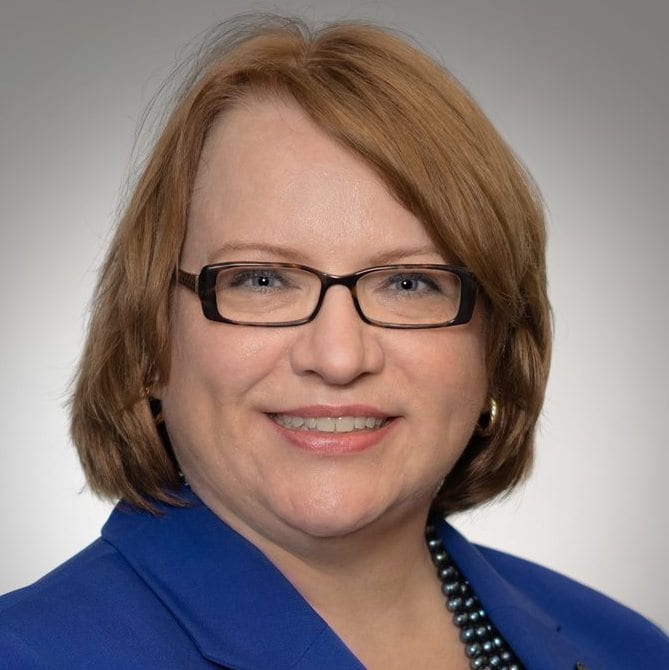
Michelle Morin is a Supplier Diversity, Inclusion, and Sustainability Professional. Focusing on inclusive procurement opportunities and sustainable suppliers that help Corteva Agriscience serve our customers and help farmers feed the world. Leading global inclusion strategy and programming to include 8 categories of diverse businesses: ethnic minority, aboriginal, indigenous, women, military veterans, individuals with disabilities, LGBTQI+, small businesses; these categories include approximately 76 sub-categories, created regionally to celebrate the richness of the people throughout. Leading supplier sustainability programming globally. Michelle’s D&I experience spans supplier diversity, state and corporate procurement, certification, strategic planning, reporting, community outreach, inclusion initiatives, creation of policy and methodologies, and sustainability. Michelle has been recognized with numerous awards and honors. She is a passionate Speaker. Corteva Agriculture is a global pure play agriculture company with 20,000+ employees, and a presence in over 140 countries, having grown out of the DowDuPont merger to become an independent company on June 1, 2019, and was listed on the NYSE on June 3, 2019 as a Fortune 200 company.
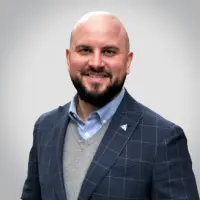
Paul Noble, As Founder and Chief Strategy Officer of Verusen, an innovator in supply chain data, inventory and procurement technology, Paul Noble oversees the company’s vision and strategic direction. He has extensive experience in the industrial supply chain and distribution space, as he was recognized as a Supply Chain Pros to Know by Supply and Demand Chain Executive in 2020, 2021 & 2022. Prior to founding Verusen, Noble spent over a decade with The Sherwin-Williams Company, where he specialized in supply chain/manufacturing and led its Eastern U.S. Industrial Distribution business unit. Noble graduated cum laude with a bachelor’s degree in Management and Marketing from Lincoln Memorial University in Harrogate, Tennessee. Connect with Paul on LinkedIn.
